Shows
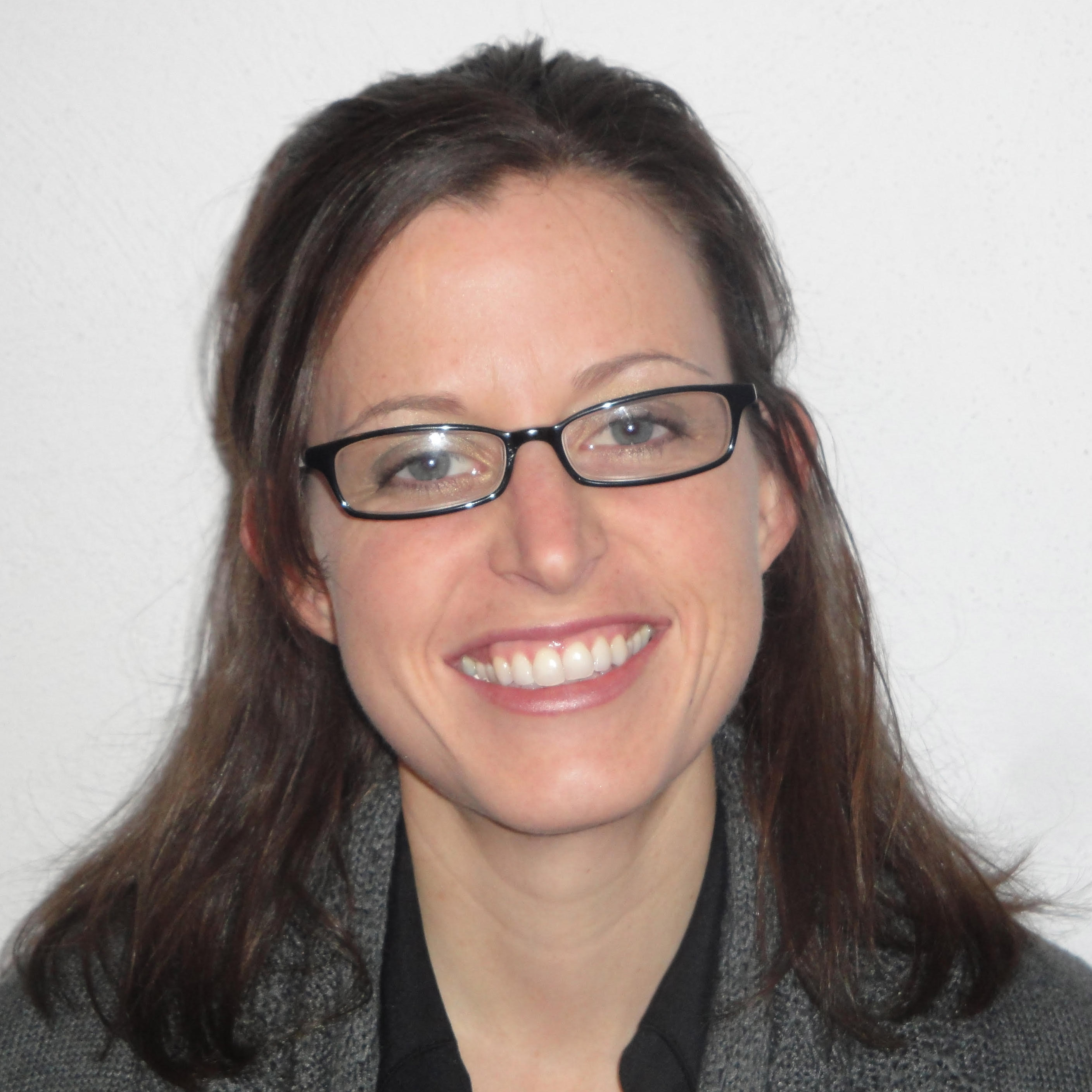 Science History PodcastATSDR: Jaimi DowdellIn Episode 62, I interviewed two Reuters journalists about how industry and government in the United States use conservation easements to avoid rigorous cleanup of contaminated sites. Today, one of those journalists, Jaimi Dowdell, is back to discuss how a federal agency responsible for community health assessments has a history of failing to protect the communities that seek its aid. Jaimi was part of the Reuters team that won the 2021 Pulitzer Prize in Explanatory Reporting. Today we discuss the Reuters special report published in August 2024 and entitled, "How a US health agency became a shield for polluters."2025-07-1258 min
Science History PodcastATSDR: Jaimi DowdellIn Episode 62, I interviewed two Reuters journalists about how industry and government in the United States use conservation easements to avoid rigorous cleanup of contaminated sites. Today, one of those journalists, Jaimi Dowdell, is back to discuss how a federal agency responsible for community health assessments has a history of failing to protect the communities that seek its aid. Jaimi was part of the Reuters team that won the 2021 Pulitzer Prize in Explanatory Reporting. Today we discuss the Reuters special report published in August 2024 and entitled, "How a US health agency became a shield for polluters."2025-07-1258 min Science History PodcastPolitical Bias: Bill von Hippel In prior episodes, we examined political interference and bias in science in a few contexts, including episode 3 on the history of U.S. congressional attacks on science, episode 57 on types of bias, episode 65 on ideology and science, and episode 84 on the academy's ideological march to the left and antisemitism on American college campuses. Since those episodes, America went back to the future with the election for the second time of Donald Trump, and the Trump Administration has attacked elite American universities such as Columbia and Harvard with historic intensity. These attacks are motivated by the right's revulsion with the...2025-06-111h 29
Science History PodcastPolitical Bias: Bill von Hippel In prior episodes, we examined political interference and bias in science in a few contexts, including episode 3 on the history of U.S. congressional attacks on science, episode 57 on types of bias, episode 65 on ideology and science, and episode 84 on the academy's ideological march to the left and antisemitism on American college campuses. Since those episodes, America went back to the future with the election for the second time of Donald Trump, and the Trump Administration has attacked elite American universities such as Columbia and Harvard with historic intensity. These attacks are motivated by the right's revulsion with the...2025-06-111h 29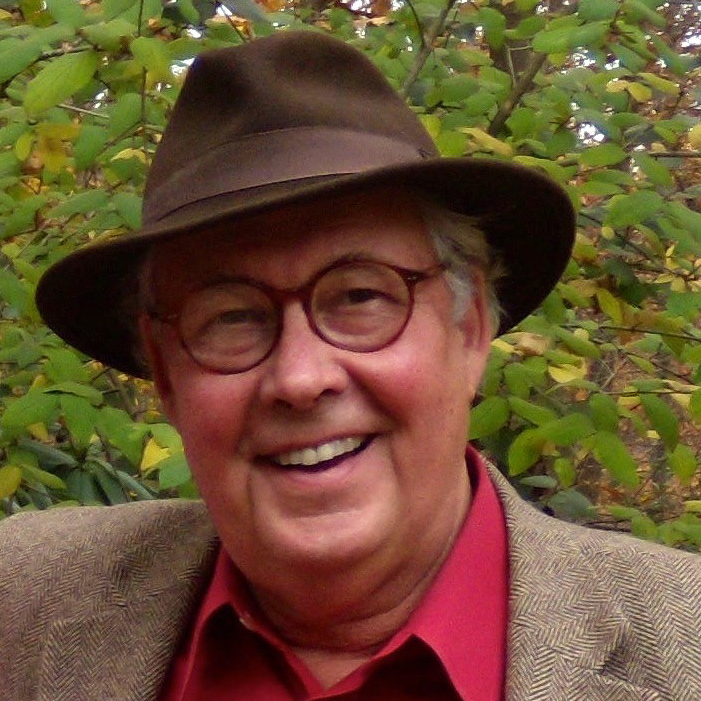 Science History PodcastPhysicists as Biologists: William LanouetteIn prior episodes, I have interviewed many people about the history of physics and physics-adjacent topics such as nuclear disarmament. Many of the physicists we have discussed also made forays into biology. Today I explore this transition of physicists working in biology with William Lanouette. Bill is a writer and public policy analyst who has specialized in the history of nuclear energy and nuclear weapons.2025-05-121h 15
Science History PodcastPhysicists as Biologists: William LanouetteIn prior episodes, I have interviewed many people about the history of physics and physics-adjacent topics such as nuclear disarmament. Many of the physicists we have discussed also made forays into biology. Today I explore this transition of physicists working in biology with William Lanouette. Bill is a writer and public policy analyst who has specialized in the history of nuclear energy and nuclear weapons.2025-05-121h 15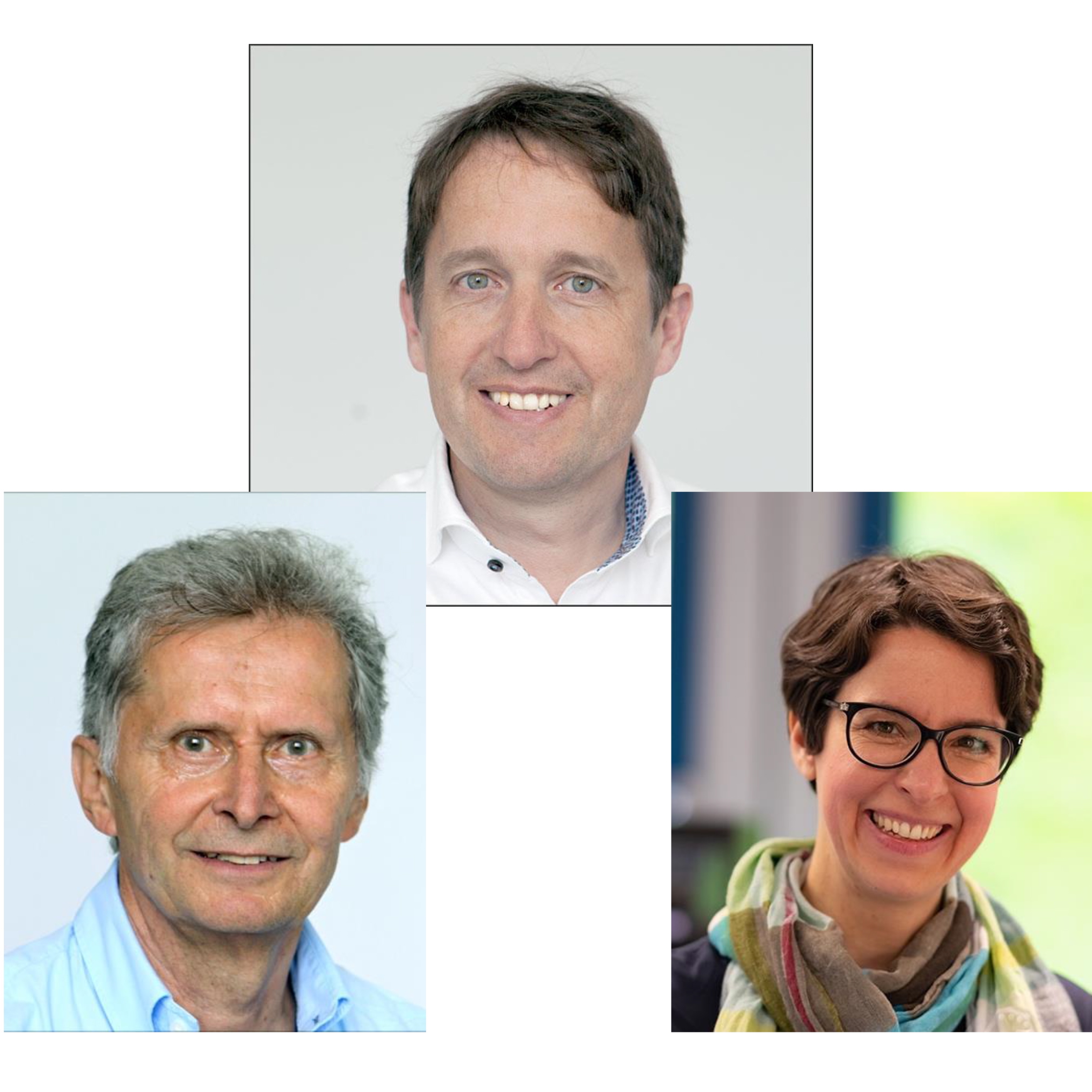 Science History PodcastGöttingen Physics: Tim Salditt, Kurt Schönhammer, & Sarah KösterPrior to the rise of Nazism, the University of Göttingen hosted most of the top physicists in the world, either as resident or visiting scientists. With us to discuss the history of physics in Göttingen are Tim Salditt, Kurt Schönhammer, and Sarah Köster. In this conversation over tea at the University of Göttingen, we discuss how Göttingen became a focal point of physics, key moments and people during the decades that Göttingen hosted discovery after discovery, and what happened to the assembly of scholars in Göttingen as Germany descended into the abyss of...2025-04-101h 15
Science History PodcastGöttingen Physics: Tim Salditt, Kurt Schönhammer, & Sarah KösterPrior to the rise of Nazism, the University of Göttingen hosted most of the top physicists in the world, either as resident or visiting scientists. With us to discuss the history of physics in Göttingen are Tim Salditt, Kurt Schönhammer, and Sarah Köster. In this conversation over tea at the University of Göttingen, we discuss how Göttingen became a focal point of physics, key moments and people during the decades that Göttingen hosted discovery after discovery, and what happened to the assembly of scholars in Göttingen as Germany descended into the abyss of...2025-04-101h 15 Science History PodcastPolymerase Chain Reaction: Henry Erlich The history of science is punctuated by moments of technological innovation that produce a paradigm shift and a subsequent flurry of discovery. A recent technological innovation that generated diverse discoveries, ranging from a profound shift in our understanding of the origin of humanity to a seismic change in the criminal justice system, is the polymerase chain reaction, or PCR. With us to discuss the history of PCR is one of its innovators, Henry Erlich. As Director of the Human Genetics Department at Cetus Corporation and later as Director of Human Genetics and Vice President of Exploratory Research at Roche...2025-03-111h 40
Science History PodcastPolymerase Chain Reaction: Henry Erlich The history of science is punctuated by moments of technological innovation that produce a paradigm shift and a subsequent flurry of discovery. A recent technological innovation that generated diverse discoveries, ranging from a profound shift in our understanding of the origin of humanity to a seismic change in the criminal justice system, is the polymerase chain reaction, or PCR. With us to discuss the history of PCR is one of its innovators, Henry Erlich. As Director of the Human Genetics Department at Cetus Corporation and later as Director of Human Genetics and Vice President of Exploratory Research at Roche...2025-03-111h 40 Science History PodcastMeitner's Atom: Marissa MossLise Meitner was the most important female physicist of the 20th century. She made fundamental discoveries on the atom, including, most famously, being the first to discover the idea of fission. This she did as she puzzled over experimental results generated by her colleague Otto Hahn. Hahn, but not Meitner, received the Nobel Prize in Chemistry for this monumental discovery. More generally, Meitner overcame profound obstacles facing women in science to become a central figure in physics during its heyday as she worked with the likes of Niels Bohr and Albert Einstein to understand the atom, and hence the...2025-02-101h 11
Science History PodcastMeitner's Atom: Marissa MossLise Meitner was the most important female physicist of the 20th century. She made fundamental discoveries on the atom, including, most famously, being the first to discover the idea of fission. This she did as she puzzled over experimental results generated by her colleague Otto Hahn. Hahn, but not Meitner, received the Nobel Prize in Chemistry for this monumental discovery. More generally, Meitner overcame profound obstacles facing women in science to become a central figure in physics during its heyday as she worked with the likes of Niels Bohr and Albert Einstein to understand the atom, and hence the...2025-02-101h 11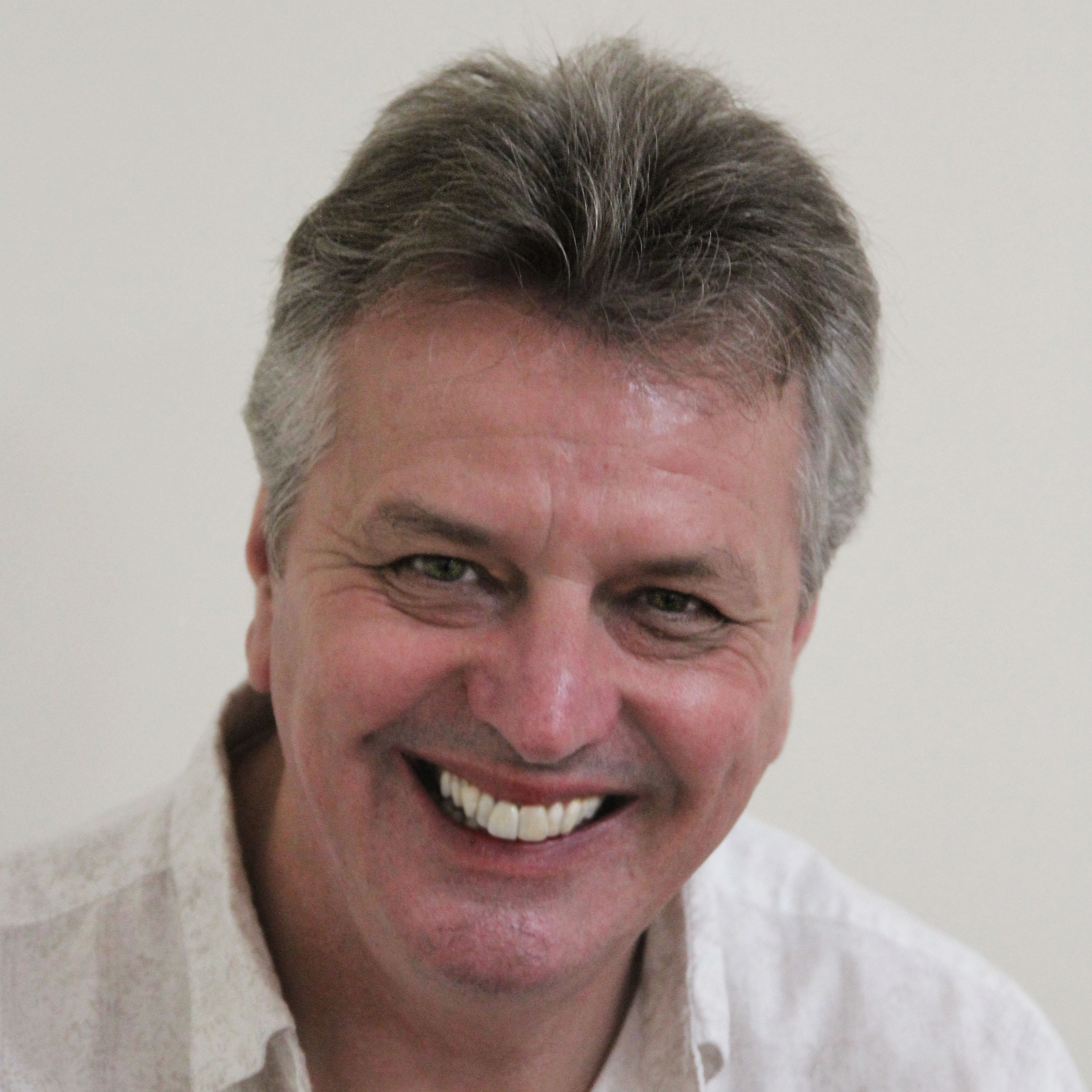 Science History PodcastQuantum Mechanics: Jim BaggottHumanity's understanding of the universe radically altered with the advent of quantum mechanics in the early 20th century. The theory of quantum mechanics describes how nature behaves at or below the scale of atoms, and the road to that theory was littered with seemingly insurmountable obstacles. With us to discuss the development of quantum mechanics, and the major schools of thought represented by Neils Bohr and Albert Einstein, is Jim Baggott. Today we discuss many of the key players in the development of quantum mechanics, including Bohr, Einstein, Wolfgang Pauli, Werner Heisenberg, Erwin Schrödinger, Max Planck, and Max B...2025-01-122h 15
Science History PodcastQuantum Mechanics: Jim BaggottHumanity's understanding of the universe radically altered with the advent of quantum mechanics in the early 20th century. The theory of quantum mechanics describes how nature behaves at or below the scale of atoms, and the road to that theory was littered with seemingly insurmountable obstacles. With us to discuss the development of quantum mechanics, and the major schools of thought represented by Neils Bohr and Albert Einstein, is Jim Baggott. Today we discuss many of the key players in the development of quantum mechanics, including Bohr, Einstein, Wolfgang Pauli, Werner Heisenberg, Erwin Schrödinger, Max Planck, and Max B...2025-01-122h 15 Global Connections Television PodcastDr. Frank N. von Hippel, “Ending the Nuclear Arms Race – A physicist’s quest.”Dr. Frank N. von Hippel, Senior Research Physicist and Professor of Public and International Affairs emeritus of the Program on Science and Global Security at Princeton University’s forthcoming book is, “Ending the Nuclear Arms Race – A physicist’s quest.” The world has 9 nuclear states and over 10,000 nuclear weapons. The Doomsday Clock sponsored by the Bulletin of Atomic Scientists is now 90-seconds before striking midnight. DoD spends over $125 million per day to maintain our nuclear stockpile. Rather than spend trillions to modernize nuclear weapons, we should reduce them. A key player has been the United Nations, through its treaties and...2025-01-0926 min
Global Connections Television PodcastDr. Frank N. von Hippel, “Ending the Nuclear Arms Race – A physicist’s quest.”Dr. Frank N. von Hippel, Senior Research Physicist and Professor of Public and International Affairs emeritus of the Program on Science and Global Security at Princeton University’s forthcoming book is, “Ending the Nuclear Arms Race – A physicist’s quest.” The world has 9 nuclear states and over 10,000 nuclear weapons. The Doomsday Clock sponsored by the Bulletin of Atomic Scientists is now 90-seconds before striking midnight. DoD spends over $125 million per day to maintain our nuclear stockpile. Rather than spend trillions to modernize nuclear weapons, we should reduce them. A key player has been the United Nations, through its treaties and...2025-01-0926 min Science History PodcastSWOPSI: Joel Primack & Robert JaffeSocietal problems big and small typically have a scientific element, often in a central way, yet most scientists are not directly involved in policy. My guests sought to change that in 1969 when they created the Stanford Workshops on Social and Political Issues, or SWOPSI. SWOPSI was founded by three students, two of whom are with us today: Joel Primack and Robert Jaffe. The third student was Joyce Kobayashi. Also with us today is my uncle Frank, who worked on some of the early SWOPSI initiatives. In this episode, I ask Joel, Bob and Frank: How did they hack Stanford's r...2024-12-121h 43
Science History PodcastSWOPSI: Joel Primack & Robert JaffeSocietal problems big and small typically have a scientific element, often in a central way, yet most scientists are not directly involved in policy. My guests sought to change that in 1969 when they created the Stanford Workshops on Social and Political Issues, or SWOPSI. SWOPSI was founded by three students, two of whom are with us today: Joel Primack and Robert Jaffe. The third student was Joyce Kobayashi. Also with us today is my uncle Frank, who worked on some of the early SWOPSI initiatives. In this episode, I ask Joel, Bob and Frank: How did they hack Stanford's r...2024-12-121h 43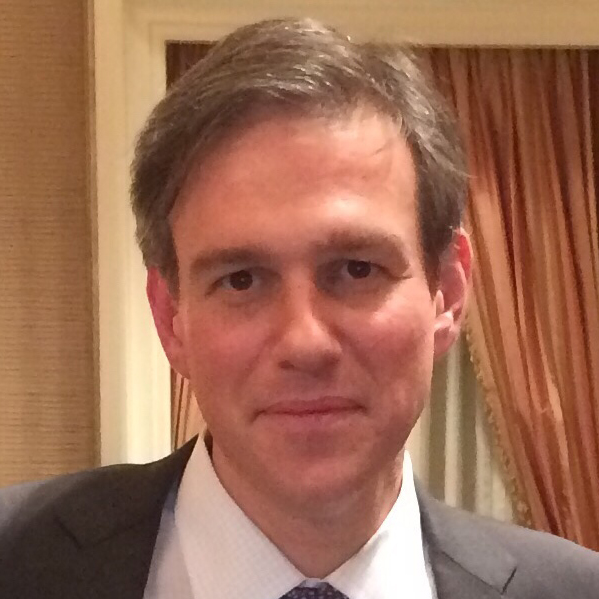 Science History PodcastThe Academy: Bret StephensInstitutions of higher education, especially in the United States, have received a great deal of attention over the past two generations regarding their ideological march to the left, and the impacts, real or imagined, on society at large. Criticism of American universities has sharpened since Oct. 7, 2023, as the Hamas attack on Israel was closely followed by campus protests against Israel. The ensuing turmoil resulted in the temporary closure of campuses, the resignations of college presidents, the cancellations of speakers and commencement ceremonies, and congressional investigations. How did American universities get to this moment? What are the implications for free...2024-11-111h 51
Science History PodcastThe Academy: Bret StephensInstitutions of higher education, especially in the United States, have received a great deal of attention over the past two generations regarding their ideological march to the left, and the impacts, real or imagined, on society at large. Criticism of American universities has sharpened since Oct. 7, 2023, as the Hamas attack on Israel was closely followed by campus protests against Israel. The ensuing turmoil resulted in the temporary closure of campuses, the resignations of college presidents, the cancellations of speakers and commencement ceremonies, and congressional investigations. How did American universities get to this moment? What are the implications for free...2024-11-111h 51 Science History PodcastHebrew: Shalom GoldmanWhat was the Western World's understanding of the origins of humanity prior to the Enlightenment? Why did Christopher Columbus have a Hebrew speaker on his voyages of exploration? Why did the American universities founded before the Revolution have Hebrew in their curriculum? What role did linguistics play in the late 19th century modernization of the Hebrew language? What does the literary critic Edmund Wilson have to do with the science of archeology? Finally, and unrelated to science, how did the soft power of the arts - including music, theater, dance, film, literature, and television - help to shape the...2024-10-111h 45
Science History PodcastHebrew: Shalom GoldmanWhat was the Western World's understanding of the origins of humanity prior to the Enlightenment? Why did Christopher Columbus have a Hebrew speaker on his voyages of exploration? Why did the American universities founded before the Revolution have Hebrew in their curriculum? What role did linguistics play in the late 19th century modernization of the Hebrew language? What does the literary critic Edmund Wilson have to do with the science of archeology? Finally, and unrelated to science, how did the soft power of the arts - including music, theater, dance, film, literature, and television - help to shape the...2024-10-111h 45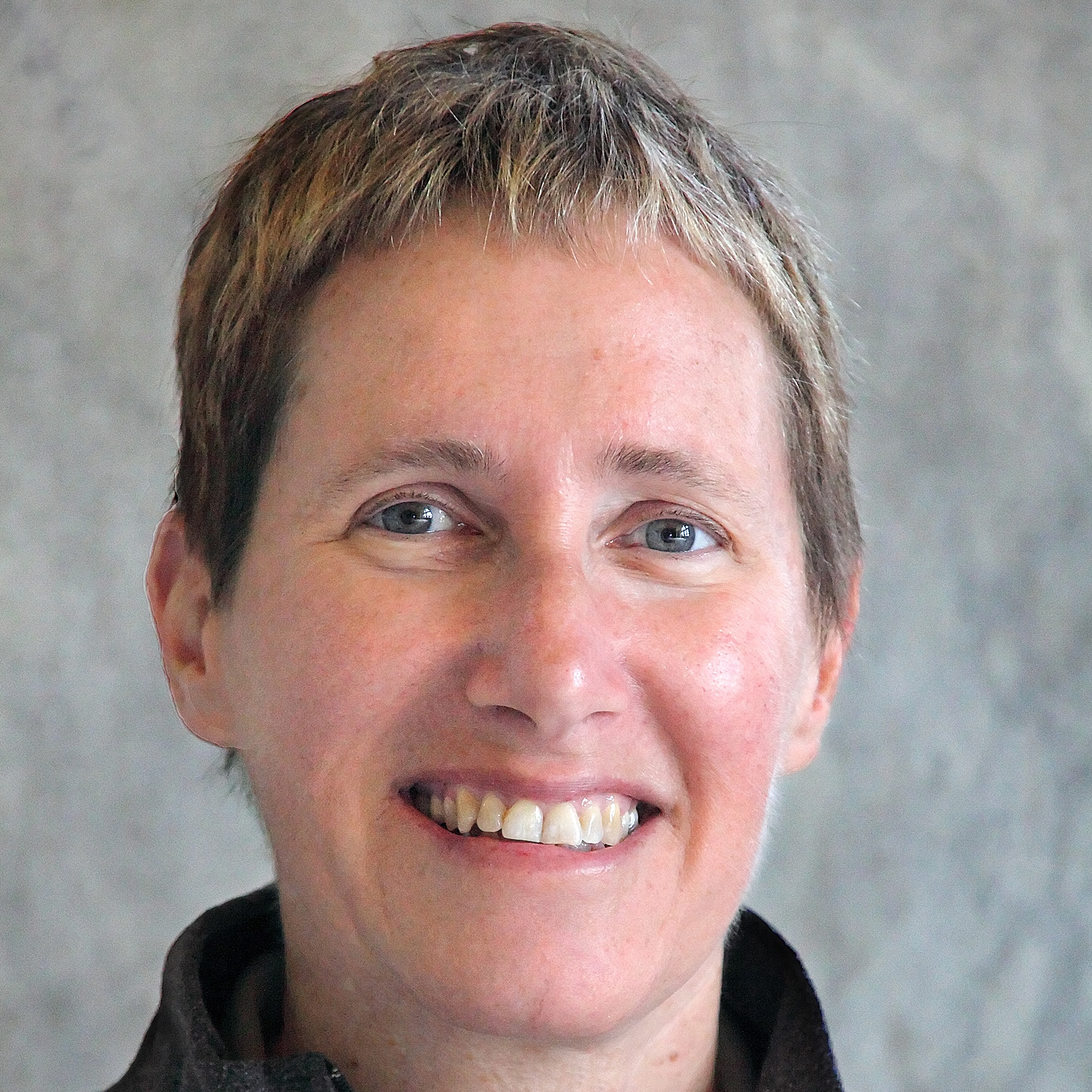 Science History PodcastJerusalem Archeology: Jodi MagnessArcheology is the science that most directly connects us with our past, and no city in the world has been subject to more archeological interest than Jerusalem. With us to explore the archeology of Jerusalem is Jodi Magness. Jodi is a member of the American Academy of Arts and Sciences. Since 2002, she has been the Kenan Distinguished Professor for Teaching Excellence in Early Judaism in the Department of Religious Studies at the University of North Carolina at Chapel Hill. Jodi's research interests focus on Palestine in the Roman, Byzantine, and early Islamic periods, and Diaspora Judaism in the Roman...2024-09-111h 42
Science History PodcastJerusalem Archeology: Jodi MagnessArcheology is the science that most directly connects us with our past, and no city in the world has been subject to more archeological interest than Jerusalem. With us to explore the archeology of Jerusalem is Jodi Magness. Jodi is a member of the American Academy of Arts and Sciences. Since 2002, she has been the Kenan Distinguished Professor for Teaching Excellence in Early Judaism in the Department of Religious Studies at the University of North Carolina at Chapel Hill. Jodi's research interests focus on Palestine in the Roman, Byzantine, and early Islamic periods, and Diaspora Judaism in the Roman...2024-09-111h 42 Science History PodcastNuclear Disarmament: Steve FetterToday I speak with Steve Fetter about his work on a variety of nuclear disarmament efforts, including the Black Sea Experiment, nuclear archeology, the risks associated with a single person having the ability to start a nuclear war, ballistic missile defense, the weaponization of space, nuclear energy, and climate change. Steve received an SB in physics from MIT in 1981 and a PhD in energy and resources from the University of California, Berkeley in 1985. Steve has been a professor in the School of Public Policy at the University of Maryland since 1988. Steve also served in government, including five years in...2024-08-111h 40
Science History PodcastNuclear Disarmament: Steve FetterToday I speak with Steve Fetter about his work on a variety of nuclear disarmament efforts, including the Black Sea Experiment, nuclear archeology, the risks associated with a single person having the ability to start a nuclear war, ballistic missile defense, the weaponization of space, nuclear energy, and climate change. Steve received an SB in physics from MIT in 1981 and a PhD in energy and resources from the University of California, Berkeley in 1985. Steve has been a professor in the School of Public Policy at the University of Maryland since 1988. Steve also served in government, including five years in...2024-08-111h 40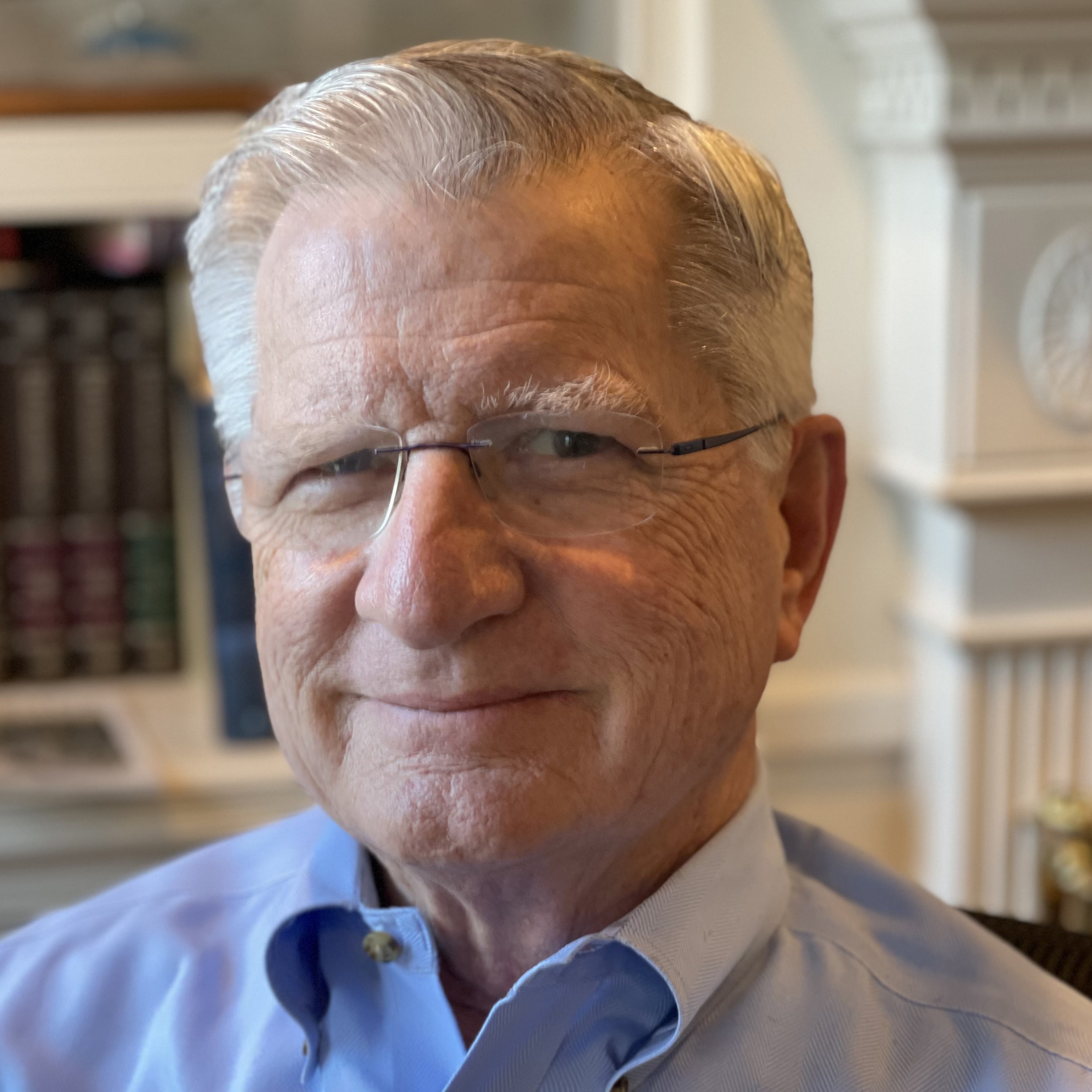 Science History PodcastSoviet Nuclear Program: Thomas CochranToday we focus on the Soviet nuclear program with Thomas Cochran. Tom directed nuclear disarmament projects at the Natural Resources Defense Council from 1973 until his retirement in 2016. He has received numerous awards for his work on nuclear disarmament, including the public service award from the Federation of American Scientists and the Szilard Award from the American Physical Society, both in 1987. Tom was elected Fellow of the American Association for the Advancement of Science in 1989, and, due to his work, the Natural Resources Defense Council received the AAAS Scientific Freedom and Responsibility Award that same year. Today we discuss the...2024-07-112h 07
Science History PodcastSoviet Nuclear Program: Thomas CochranToday we focus on the Soviet nuclear program with Thomas Cochran. Tom directed nuclear disarmament projects at the Natural Resources Defense Council from 1973 until his retirement in 2016. He has received numerous awards for his work on nuclear disarmament, including the public service award from the Federation of American Scientists and the Szilard Award from the American Physical Society, both in 1987. Tom was elected Fellow of the American Association for the Advancement of Science in 1989, and, due to his work, the Natural Resources Defense Council received the AAAS Scientific Freedom and Responsibility Award that same year. Today we discuss the...2024-07-112h 07 Science History PodcastEndocrine Disruption: Patricia HuntToday we explore the history of the field of endocrine disruption with Patricia Hunt. Pat is a Regents Professor in the School of Molecular Biosciences at Washington State University. She is a distinguished researcher and the recipient of many awards; additionally, she works at the forefront of initiatives to communicate complex scientific findings to the public. 2024-06-1244 min
Science History PodcastEndocrine Disruption: Patricia HuntToday we explore the history of the field of endocrine disruption with Patricia Hunt. Pat is a Regents Professor in the School of Molecular Biosciences at Washington State University. She is a distinguished researcher and the recipient of many awards; additionally, she works at the forefront of initiatives to communicate complex scientific findings to the public. 2024-06-1244 min Science History PodcastSzilard After the War: William LanouetteIn episode 77, I interviewed William Lanouette about Leo Szilard's work on the atom bomb, with a discussion of the roles that Szilard played until the end of World War II. Today, in part two of my interview with Bill, we focus on Szilard's achievements after the war. Bill is a writer and public policy analyst who has specialized in the history of nuclear energy and nuclear weapons. He received an A.B. in English with a minor in Philosophy at Fordham College in 1963, and M.Sc. and Ph.D. degrees in Political Science at the London School of Economics...2024-05-1346 min
Science History PodcastSzilard After the War: William LanouetteIn episode 77, I interviewed William Lanouette about Leo Szilard's work on the atom bomb, with a discussion of the roles that Szilard played until the end of World War II. Today, in part two of my interview with Bill, we focus on Szilard's achievements after the war. Bill is a writer and public policy analyst who has specialized in the history of nuclear energy and nuclear weapons. He received an A.B. in English with a minor in Philosophy at Fordham College in 1963, and M.Sc. and Ph.D. degrees in Political Science at the London School of Economics...2024-05-1346 min Science History PodcastSzilard's Chain Reaction: William LanouettePerhaps the most overlooked scientist who played critical roles in the development of the atomic bomb was Leo Szilard. With us to explore Szilard's numerous contributions to science and society is William Lanouette. Bill is a writer and public policy analyst who has specialized in the history of nuclear energy and nuclear weapons. He received an A.B. in English with a minor in Philosophy at Fordham College in 1963, and M.Sc. and Ph.D. degrees in Political Science at the London School of Economics and the University of London in 1966 and 1973, respectively. Bill then worked as a journalist...2024-04-111h 44
Science History PodcastSzilard's Chain Reaction: William LanouettePerhaps the most overlooked scientist who played critical roles in the development of the atomic bomb was Leo Szilard. With us to explore Szilard's numerous contributions to science and society is William Lanouette. Bill is a writer and public policy analyst who has specialized in the history of nuclear energy and nuclear weapons. He received an A.B. in English with a minor in Philosophy at Fordham College in 1963, and M.Sc. and Ph.D. degrees in Political Science at the London School of Economics and the University of London in 1966 and 1973, respectively. Bill then worked as a journalist...2024-04-111h 44 The Chemical Sensitivity PodcastThe Chemical Age: Frank A. von HippelEpisode 43 of The Chemical Sensitivity Podcast is available now!https://www.chemicalsensitivitypodcast.org/ It’s called: “The Chemical Age.” It features a conversation with Frank A. von Hippel, Ph.D. Frank is a professor of environmental health sciences at the University of Arizona. His research focuses on toxicology and health disparities, with a focus on Indigenous and underserved communities. Frank is the author of 2020 book, “The Chemical Age,” and he is the creator and host of the Science History Podcast:You’ll hear Frank explore:· Why scientists developed pesticides to comba...2024-03-1946 min
The Chemical Sensitivity PodcastThe Chemical Age: Frank A. von HippelEpisode 43 of The Chemical Sensitivity Podcast is available now!https://www.chemicalsensitivitypodcast.org/ It’s called: “The Chemical Age.” It features a conversation with Frank A. von Hippel, Ph.D. Frank is a professor of environmental health sciences at the University of Arizona. His research focuses on toxicology and health disparities, with a focus on Indigenous and underserved communities. Frank is the author of 2020 book, “The Chemical Age,” and he is the creator and host of the Science History Podcast:You’ll hear Frank explore:· Why scientists developed pesticides to comba...2024-03-1946 min Science History PodcastMalaria & Reminiscences: Nobel Laureate Peter AgrePeter Agre received the 2003 Nobel Prize in Chemistry for his discovery of aquaporins. Peter is a Bloomberg Distinguished Professor in Molecular Microbiology and Immunology at Johns Hopkins Bloomberg School of Public Health, and he also directed the Johns Hopkins Malaria Research Institute until 2023. Today we discuss the history of malaria research, and Peter reflects on being a scientist. The interview is followed by Peter's keynote lecture for the University of Arizona One Health symposium, which he gave on February 12, 2024.2024-03-111h 46
Science History PodcastMalaria & Reminiscences: Nobel Laureate Peter AgrePeter Agre received the 2003 Nobel Prize in Chemistry for his discovery of aquaporins. Peter is a Bloomberg Distinguished Professor in Molecular Microbiology and Immunology at Johns Hopkins Bloomberg School of Public Health, and he also directed the Johns Hopkins Malaria Research Institute until 2023. Today we discuss the history of malaria research, and Peter reflects on being a scientist. The interview is followed by Peter's keynote lecture for the University of Arizona One Health symposium, which he gave on February 12, 2024.2024-03-111h 46 Science History PodcastRetrospective: Oliver SacksIn 1994, while attending graduate school at the University of California, Berkeley, I had the pleasure of seeing a lecture by Oliver Sacks in which he discussed his work on sleeping sickness and various other neurological disorders. He also discussed his thoughts on the economy of a life. Today's episode is that lecture in full, with all the insights and charm that was Oliver Sacks.2024-02-111h 26
Science History PodcastRetrospective: Oliver SacksIn 1994, while attending graduate school at the University of California, Berkeley, I had the pleasure of seeing a lecture by Oliver Sacks in which he discussed his work on sleeping sickness and various other neurological disorders. He also discussed his thoughts on the economy of a life. Today's episode is that lecture in full, with all the insights and charm that was Oliver Sacks.2024-02-111h 26 Science History PodcastNovichok: Vil MirzayanovNovichok is the most deadly chemical weapon ever developed. With us to discuss the history of Novichok is Vil Mirzayanov. Vil worked in the secret Soviet chemical weapons laboratory that developed Novichok. He revealed its existence to the world in 1991 and was then arrested by the Russian counterintelligence service and prosecuted in a secret trial. He won his freedom with the help of an international group of scientists, including three who have appeared as guests on this podcast. He then immigrated to the United States and published his story in the book State Secrets. An Insider's Chronicle of the...2024-01-121h 55
Science History PodcastNovichok: Vil MirzayanovNovichok is the most deadly chemical weapon ever developed. With us to discuss the history of Novichok is Vil Mirzayanov. Vil worked in the secret Soviet chemical weapons laboratory that developed Novichok. He revealed its existence to the world in 1991 and was then arrested by the Russian counterintelligence service and prosecuted in a secret trial. He won his freedom with the help of an international group of scientists, including three who have appeared as guests on this podcast. He then immigrated to the United States and published his story in the book State Secrets. An Insider's Chronicle of the...2024-01-121h 55 Science History PodcastPascual Jordan's Duplicity: Ryan DahnHow could a brilliant scientist and mathematician, an innovator in quantum theory, who worked closely with Jewish colleagues, become an ardent Nazi? How did this man, who has a field of mathematics named after him, escape the scrutiny of his colleagues? And what happened to him upon the collapse of Nazi Germany? The scientist who straddled this strange world of physics and Nazism was Pascual Jordan. With us to explain the history of Pascual Jordan is Ryan Dahn. Ryan is a writer, editor, science historian, and translator. He is the books editor at Physics Today, the flagship physics magazine...2023-12-111h 08
Science History PodcastPascual Jordan's Duplicity: Ryan DahnHow could a brilliant scientist and mathematician, an innovator in quantum theory, who worked closely with Jewish colleagues, become an ardent Nazi? How did this man, who has a field of mathematics named after him, escape the scrutiny of his colleagues? And what happened to him upon the collapse of Nazi Germany? The scientist who straddled this strange world of physics and Nazism was Pascual Jordan. With us to explain the history of Pascual Jordan is Ryan Dahn. Ryan is a writer, editor, science historian, and translator. He is the books editor at Physics Today, the flagship physics magazine...2023-12-111h 08 Science History PodcastScientific Espionage: Eli LakeMany of the most important secrets held in international contests are technological or scientific in nature, and wars are often settled due to technological superiority of one side over the other. This leads spy agencies to employ all manner of trickery and tools to obtain those secrets. With us to explore the history of scientific espionage is Eli Lake. Eli was a senior national security correspondent for The Daily Beast and Newsweek, and a syndicated columnist with Bloomberg. Eli is now a columnist for the Free Press and the host of the Re-Education Podcast on Nebulous media. Eli is...2023-11-121h 46
Science History PodcastScientific Espionage: Eli LakeMany of the most important secrets held in international contests are technological or scientific in nature, and wars are often settled due to technological superiority of one side over the other. This leads spy agencies to employ all manner of trickery and tools to obtain those secrets. With us to explore the history of scientific espionage is Eli Lake. Eli was a senior national security correspondent for The Daily Beast and Newsweek, and a syndicated columnist with Bloomberg. Eli is now a columnist for the Free Press and the host of the Re-Education Podcast on Nebulous media. Eli is...2023-11-121h 46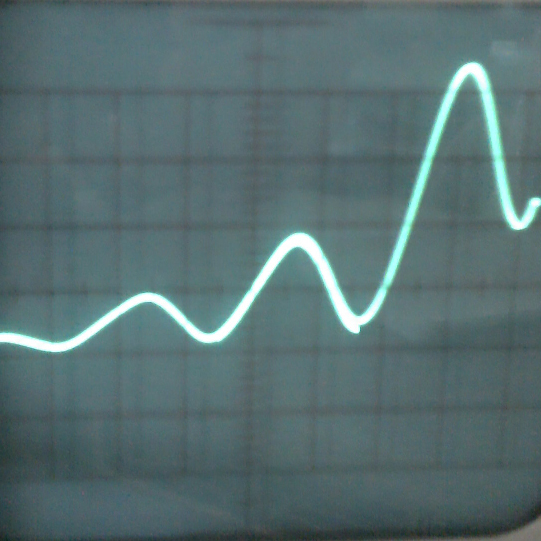 Science History PodcastRetrospective: The Franck-Hertz ExperimentA retrospective on the Franck-Hertz experiment, which resulted in James Franck and Gustav Hertz receiving the 1925 Nobel Prize in Physics. Image credit: By Infoczo - Own work, CC BY-SA 4.0, https://commons.wikimedia.org/w/index.php?curid=352819202023-10-1138 min
Science History PodcastRetrospective: The Franck-Hertz ExperimentA retrospective on the Franck-Hertz experiment, which resulted in James Franck and Gustav Hertz receiving the 1925 Nobel Prize in Physics. Image credit: By Infoczo - Own work, CC BY-SA 4.0, https://commons.wikimedia.org/w/index.php?curid=352819202023-10-1138 min Science History PodcastRetrospective: James FranckA retrospective on James Franck, recipient of the 1925 Nobel Prize in Physics.2023-09-111h 21
Science History PodcastRetrospective: James FranckA retrospective on James Franck, recipient of the 1925 Nobel Prize in Physics.2023-09-111h 21 Science History PodcastAncient DNA: Maanasa Raghavan The ability to extract DNA from ancient fragments of biological material has revolutionized our understanding of recent evolutionary history, including human evolution and phylogeography. Analysis of ancient DNA in tandem with radiocarbon dating, along with traditional archeological techniques, has led to a flurry of discoveries. With us to discuss this research is Maanasa Raghavan. Maanasa is a Neubauer Family Assistant Professor of Human Genetics at the University of Chicago. 2023-08-111h 13
Science History PodcastAncient DNA: Maanasa Raghavan The ability to extract DNA from ancient fragments of biological material has revolutionized our understanding of recent evolutionary history, including human evolution and phylogeography. Analysis of ancient DNA in tandem with radiocarbon dating, along with traditional archeological techniques, has led to a flurry of discoveries. With us to discuss this research is Maanasa Raghavan. Maanasa is a Neubauer Family Assistant Professor of Human Genetics at the University of Chicago. 2023-08-111h 13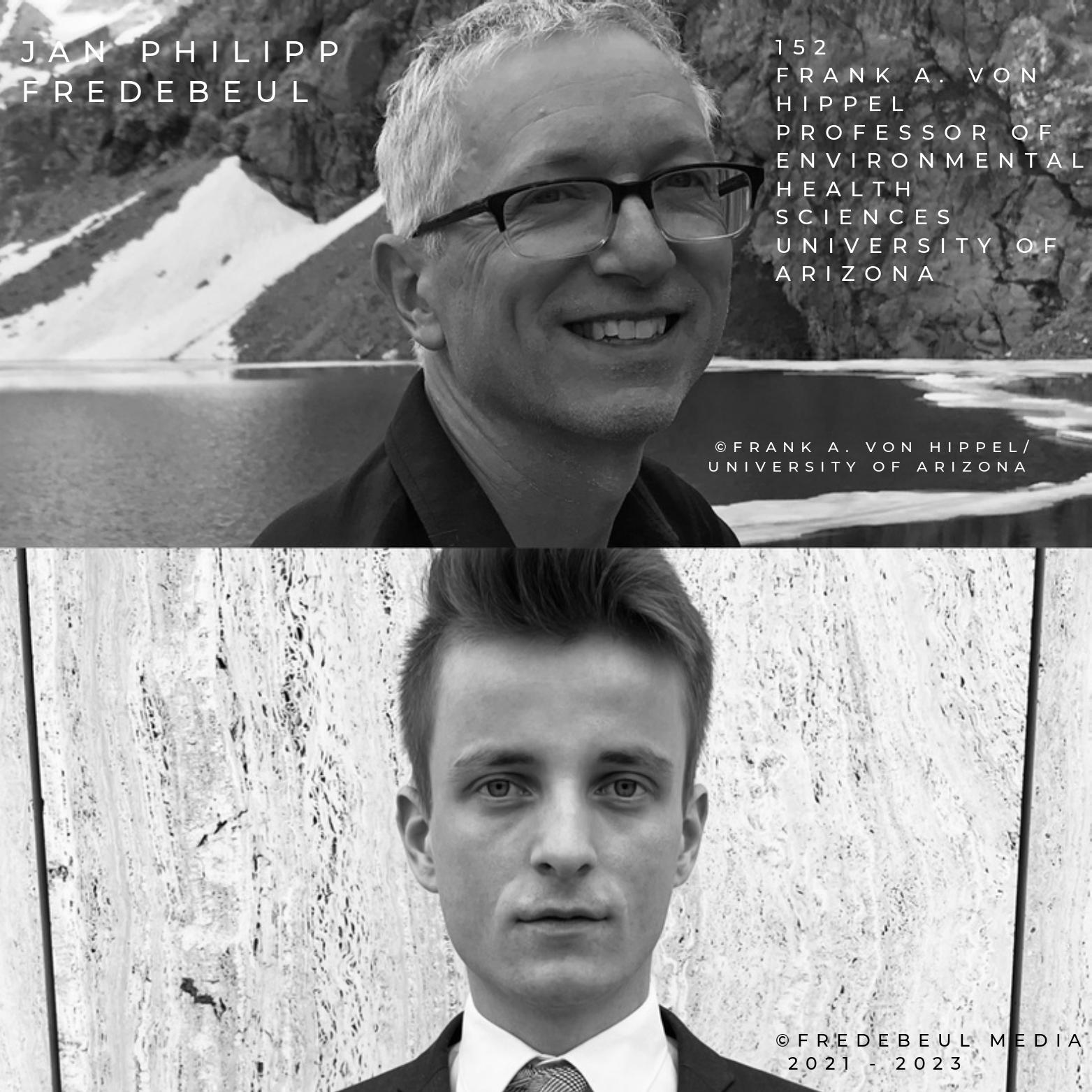 JAN PHILIPP FREDEBEUL152 - FRANK A. VON HIPPELFrank A. von Hippel is a professor of environmental health sciences in the Mel & Enid Zuckerman College of Public Health and the lead of the “One Health” research initiative at the University of Arizona. Frank has taught field courses in over twenty countries, and conducted research in the Americas, Africa and Australia. He conducts research at the nexus of ecotoxicology, mechanisms of toxicity, and health disparities, with a focus on Indigenous populations. Frank uses locally occurring wildlife and laboratory animals as models for human exposure and disease, and he employs a Community Based Participatory Research (CBPR) approach.2023-07-2452 min
JAN PHILIPP FREDEBEUL152 - FRANK A. VON HIPPELFrank A. von Hippel is a professor of environmental health sciences in the Mel & Enid Zuckerman College of Public Health and the lead of the “One Health” research initiative at the University of Arizona. Frank has taught field courses in over twenty countries, and conducted research in the Americas, Africa and Australia. He conducts research at the nexus of ecotoxicology, mechanisms of toxicity, and health disparities, with a focus on Indigenous populations. Frank uses locally occurring wildlife and laboratory animals as models for human exposure and disease, and he employs a Community Based Participatory Research (CBPR) approach.2023-07-2452 min Science History PodcastPandemics: Leslie ReperantThe world just experienced a devastating pandemic, yet in the context of historical pandemics, COVID-19 was a relatively minor event in the history of disease. What do we know about the history of pandemics, including before written records, and what can we learn from this history? With us to answer these and other questions about the origins of epidemics and pandemics is Leslie Reperant. Leslie graduated with a doctorate of veterinary medicine at the National Veterinary School of Lyon, France in 2004 and obtained a PhD at Princeton University in the Department of Ecology and Evolutionary Biology in 2010. Leslie's doctoral...2023-07-111h 10
Science History PodcastPandemics: Leslie ReperantThe world just experienced a devastating pandemic, yet in the context of historical pandemics, COVID-19 was a relatively minor event in the history of disease. What do we know about the history of pandemics, including before written records, and what can we learn from this history? With us to answer these and other questions about the origins of epidemics and pandemics is Leslie Reperant. Leslie graduated with a doctorate of veterinary medicine at the National Veterinary School of Lyon, France in 2004 and obtained a PhD at Princeton University in the Department of Ecology and Evolutionary Biology in 2010. Leslie's doctoral...2023-07-111h 10 Science History PodcastLazaretto: David BarnesBefore the advent of the germ theory of disease in the 1870s, quarantine provided one of the few effective means to prevent or alleviate epidemics. The Lazaretto quarantine station in Philadelphia illustrates the history of quarantine both before and after the discovery of pathogenic microbes. With us to explore the history of 18th and 19th century quarantine in Philadelphia, and what it meant for public health, is David Barnes. David teaches the history of medicine and public health at the University of Pennsylvania, where he is an Associate Professor of History and Sociology of Science. David received a BA...2023-06-121h 43
Science History PodcastLazaretto: David BarnesBefore the advent of the germ theory of disease in the 1870s, quarantine provided one of the few effective means to prevent or alleviate epidemics. The Lazaretto quarantine station in Philadelphia illustrates the history of quarantine both before and after the discovery of pathogenic microbes. With us to explore the history of 18th and 19th century quarantine in Philadelphia, and what it meant for public health, is David Barnes. David teaches the history of medicine and public health at the University of Pennsylvania, where he is an Associate Professor of History and Sociology of Science. David received a BA...2023-06-121h 43 Science History PodcastClimbing, Chemistry & Policy: Arlene BlumWhat are the commonalities between scaling the world's highest peaks and tackling the most challenging pollution problems? What was it like to enter the worlds of climbing and chemistry as a woman in the 1960s and 70s? With us to answer these questions is Arlene Blum. Arlene completed a bachelor's degree at Reed College in 1966 and a PhD in biophysical chemistry at Berkeley in 1971. She was a pioneering alpinist early in her career and a founder of the Green Science Policy Institute later in her career. She is the author of Annapurna - A Woman's Place, published by Counterpoint...2023-05-121h 04
Science History PodcastClimbing, Chemistry & Policy: Arlene BlumWhat are the commonalities between scaling the world's highest peaks and tackling the most challenging pollution problems? What was it like to enter the worlds of climbing and chemistry as a woman in the 1960s and 70s? With us to answer these questions is Arlene Blum. Arlene completed a bachelor's degree at Reed College in 1966 and a PhD in biophysical chemistry at Berkeley in 1971. She was a pioneering alpinist early in her career and a founder of the Green Science Policy Institute later in her career. She is the author of Annapurna - A Woman's Place, published by Counterpoint...2023-05-121h 04 Science History PodcastIdeology & Science: Lee JussimAny intellectual endeavor runs the risk of bias. Today we explore ways in which political ideology interferes with scholarship, particularly in the social sciences, with a focus on social psychology. My guest is Lee Jussim, a distinguished professor of social psychology and the leader of the Social Perception Laboratory at Rutgers University. Lee is a prolific author and studies stereotypes, prejudice, and discrimination; political radicalization; and other problems that impede science and society. Lee's books include Social Perception and Social Reality, which received the American Association of Publishers award for best book in psychology, as well as the edited...2023-04-111h 30
Science History PodcastIdeology & Science: Lee JussimAny intellectual endeavor runs the risk of bias. Today we explore ways in which political ideology interferes with scholarship, particularly in the social sciences, with a focus on social psychology. My guest is Lee Jussim, a distinguished professor of social psychology and the leader of the Social Perception Laboratory at Rutgers University. Lee is a prolific author and studies stereotypes, prejudice, and discrimination; political radicalization; and other problems that impede science and society. Lee's books include Social Perception and Social Reality, which received the American Association of Publishers award for best book in psychology, as well as the edited...2023-04-111h 30 Science History PodcastEnvironmental Diplomacy: Mark LytleThe world's environmental problems demand solutions for the common good, which in turn necessitate environmental diplomacy. With us to untangle the messy history of environmental diplomacy is Mark Lytle. In addition to his long tenure as a professor at Bard College, Mark has taught at Yale, Vassar, and University College Dublin. Mark's books include The Origins of the Iranian-American Alliance, 1941-1953, America’s Uncivil Wars: The Sixties Era from Elvis to the Fall of Richard Nixon, The Gentle Subversive: Rachel Carson, Silent Spring, and the Rise of the Environmental Movement, and The All-Consuming Nation: Pursuing the American Dream Since Wo...2023-03-171h 30
Science History PodcastEnvironmental Diplomacy: Mark LytleThe world's environmental problems demand solutions for the common good, which in turn necessitate environmental diplomacy. With us to untangle the messy history of environmental diplomacy is Mark Lytle. In addition to his long tenure as a professor at Bard College, Mark has taught at Yale, Vassar, and University College Dublin. Mark's books include The Origins of the Iranian-American Alliance, 1941-1953, America’s Uncivil Wars: The Sixties Era from Elvis to the Fall of Richard Nixon, The Gentle Subversive: Rachel Carson, Silent Spring, and the Rise of the Environmental Movement, and The All-Consuming Nation: Pursuing the American Dream Since Wo...2023-03-171h 30 Science History PodcastPaleoanthropology: Evan HadinghamCertain fields of science attract broad interest because of what they tell us about humanity, and no field does this more directly than paleoanthropology. Today we explore the history of paleoanthropology with a focus on Louis and Mary Leakey, who made key discoveries at an inflection point of our understanding of human evolution. With us to discuss this history is Evan Hadingham. Evanis the Senior Science Editor of the award-winning PBS series NOVA. Today we discuss his new book, Discovering Us, Fifty Great Discoveries in Human Origins, published in partnership with the Leakey Foundation in 2021.2023-02-111h 17
Science History PodcastPaleoanthropology: Evan HadinghamCertain fields of science attract broad interest because of what they tell us about humanity, and no field does this more directly than paleoanthropology. Today we explore the history of paleoanthropology with a focus on Louis and Mary Leakey, who made key discoveries at an inflection point of our understanding of human evolution. With us to discuss this history is Evan Hadingham. Evanis the Senior Science Editor of the award-winning PBS series NOVA. Today we discuss his new book, Discovering Us, Fifty Great Discoveries in Human Origins, published in partnership with the Leakey Foundation in 2021.2023-02-111h 17 Science History PodcastConservation Easement or Easy Pollution? Jaimi Dowdell and Andrea JanutaHow could a conservation easement be anything other than a great thing? With us to answer this question are Jaimi Dowdell and Andrea Januta, both of whom are investigative reporters and data journalists with Reuters. Jaimi and Andrea were part of the Reuters team that won the 2021 Pulitzer Prize in Explanatory Reporting. Today we discuss their Reuters special report entitled "How Boeing created a nature preserve that may also preserve pollution", published on July 20, 2022.2023-01-111h 15
Science History PodcastConservation Easement or Easy Pollution? Jaimi Dowdell and Andrea JanutaHow could a conservation easement be anything other than a great thing? With us to answer this question are Jaimi Dowdell and Andrea Januta, both of whom are investigative reporters and data journalists with Reuters. Jaimi and Andrea were part of the Reuters team that won the 2021 Pulitzer Prize in Explanatory Reporting. Today we discuss their Reuters special report entitled "How Boeing created a nature preserve that may also preserve pollution", published on July 20, 2022.2023-01-111h 15 Science History PodcastForesight: Thomas SuddendorfFor thousands of years, scholars have struggled with what it means to be human. One critical dimension of humanity is foresight, and with us to decipher the evolution of foresight is Thomas Suddendorf. Thomas is a professor at the University of Queensland, where he investigates mental capacities in young children and in animals to answer fundamental questions about the nature and evolution of the human mind. Thomas is the author of over 140 research articles and two books: The Gap: The science of what separates us from other animals, published in 2013 by Basic Books, and The invention of tomorrow: a...2022-12-111h 18
Science History PodcastForesight: Thomas SuddendorfFor thousands of years, scholars have struggled with what it means to be human. One critical dimension of humanity is foresight, and with us to decipher the evolution of foresight is Thomas Suddendorf. Thomas is a professor at the University of Queensland, where he investigates mental capacities in young children and in animals to answer fundamental questions about the nature and evolution of the human mind. Thomas is the author of over 140 research articles and two books: The Gap: The science of what separates us from other animals, published in 2013 by Basic Books, and The invention of tomorrow: a...2022-12-111h 18 Science History PodcastPlanetary Boundary Threats: Bethanie Carney AlmrothJohan Rockström and colleagues first proposed the concept in 2009 of planetary boundary threats and a safe operating space for humanity. This conceptual framework clarifies environmental problems that are of planetary significance, such as biodiversity loss, climate change, and stratospheric ozone depletion. The most recently articulated planetary boundary threat, or set of threats, relates to chemical pollution of the biosphere. With us to unpack planetary boundary threats as they relate to pollution is Bethanie Carney Almroth. Bethanie is a professor at the University of Gothenburg, where she researches threats posed to our planet due to the immense number and q...2022-11-111h 07
Science History PodcastPlanetary Boundary Threats: Bethanie Carney AlmrothJohan Rockström and colleagues first proposed the concept in 2009 of planetary boundary threats and a safe operating space for humanity. This conceptual framework clarifies environmental problems that are of planetary significance, such as biodiversity loss, climate change, and stratospheric ozone depletion. The most recently articulated planetary boundary threat, or set of threats, relates to chemical pollution of the biosphere. With us to unpack planetary boundary threats as they relate to pollution is Bethanie Carney Almroth. Bethanie is a professor at the University of Gothenburg, where she researches threats posed to our planet due to the immense number and q...2022-11-111h 07 Science History PodcastThe Civilian Conservation Corps: Neil MaherThe Wall Street Crash of 1929 and the ensuing worldwide Great Depression left families in economic shock and despair. International trade collapsed to less than half of its previous levels and unemployment skyrocketed. Into this devastating mess stepped Franklin Delano Roosevelt, who began his long presidency in 1933. FDR spearheaded a series of programs known as the New Deal to revive the United States. The most popular of these was the government work relief program called the Civilian Conservation Corps, which ran from 1933 to 1942. Three million American men joined the Corps, gaining skills and employment while also attending to widespread conservation...2022-10-1120 min
Science History PodcastThe Civilian Conservation Corps: Neil MaherThe Wall Street Crash of 1929 and the ensuing worldwide Great Depression left families in economic shock and despair. International trade collapsed to less than half of its previous levels and unemployment skyrocketed. Into this devastating mess stepped Franklin Delano Roosevelt, who began his long presidency in 1933. FDR spearheaded a series of programs known as the New Deal to revive the United States. The most popular of these was the government work relief program called the Civilian Conservation Corps, which ran from 1933 to 1942. Three million American men joined the Corps, gaining skills and employment while also attending to widespread conservation...2022-10-1120 min Science History PodcastEpisode 58. Subtraction: Leidy KlotzThe ways people think about matters both big and small, from climate change to daily tasks, impact the outcomes. Throughout the history of science and society, key insights arose through a thought process of simplification and subtraction, though the human tendency leans towards complication and addition. Today I discuss the power of subtraction with Leidy Klotz. Leidy is a professor at the University of Virginia, where he studies the science of design. He is the author of Subtract, published in 2021 by Flatiron Books.2022-09-111h 09
Science History PodcastEpisode 58. Subtraction: Leidy KlotzThe ways people think about matters both big and small, from climate change to daily tasks, impact the outcomes. Throughout the history of science and society, key insights arose through a thought process of simplification and subtraction, though the human tendency leans towards complication and addition. Today I discuss the power of subtraction with Leidy Klotz. Leidy is a professor at the University of Virginia, where he studies the science of design. He is the author of Subtract, published in 2021 by Flatiron Books.2022-09-111h 09 Science History PodcastBias: Jim ZimringNo matter our claims to the contrary, we are all biased in our perceptions and beliefs. But bias is not random and its directions relate to our evolutionary history and culture, especially to how these interface with human sociality. With us to decipher bias is Jim Zimring. Jim is the author of What Science is and How it Really Works, published by Cambridge University Press in 2019, and Partial Truths: How Fractions Distort Our Thinking, published by Columbia University Press in 2022. Today we discuss flawed thinking about fractions, the No True Scotsman Fallacy, what we see when we read, heuristics...2022-08-111h 55
Science History PodcastBias: Jim ZimringNo matter our claims to the contrary, we are all biased in our perceptions and beliefs. But bias is not random and its directions relate to our evolutionary history and culture, especially to how these interface with human sociality. With us to decipher bias is Jim Zimring. Jim is the author of What Science is and How it Really Works, published by Cambridge University Press in 2019, and Partial Truths: How Fractions Distort Our Thinking, published by Columbia University Press in 2022. Today we discuss flawed thinking about fractions, the No True Scotsman Fallacy, what we see when we read, heuristics...2022-08-111h 55 Science History PodcastMarine Pollution: David ValentineThe oceans have been used as the dumping grounds for all manner of toxic waste. Outrage over such dumping led to the Marine Protection, Research, and Sanctuaries Act of 1972 in the United States and the London Convention on the Prevention of Marine Pollution by Dumping of Wastes and Other Matter in 1975. Today I discuss the dumping of DDT and other wastes off the coast of Southern California with Dave Valentine. Dave completed a BS in chemistry and biochemistry at the University of California San Diego in 1995, followed by an MS in chemistry also at UCSD the following year. He...2022-07-1145 min
Science History PodcastMarine Pollution: David ValentineThe oceans have been used as the dumping grounds for all manner of toxic waste. Outrage over such dumping led to the Marine Protection, Research, and Sanctuaries Act of 1972 in the United States and the London Convention on the Prevention of Marine Pollution by Dumping of Wastes and Other Matter in 1975. Today I discuss the dumping of DDT and other wastes off the coast of Southern California with Dave Valentine. Dave completed a BS in chemistry and biochemistry at the University of California San Diego in 1995, followed by an MS in chemistry also at UCSD the following year. He...2022-07-1145 min Science History PodcastDDT: Elena ConisMany landmarks of environmental history share a connection with a single molecule: DDT. During and after the Second World War, it was broadcast into the environment at a scale that far surpassed the applications of any prior chemical. The public met this mass spraying of DDT with enthusiasm, as the war proved it to be highly effective against the vectors of malaria, yellow fever, typhus, and other insect-borne diseases. But these public health successes were short-lived as insects quickly evolved resistance. Nevertheless, DDT use skyrocketed around the world, especially in agriculture. It was also used on a massive scale...2022-07-071h 56
Science History PodcastDDT: Elena ConisMany landmarks of environmental history share a connection with a single molecule: DDT. During and after the Second World War, it was broadcast into the environment at a scale that far surpassed the applications of any prior chemical. The public met this mass spraying of DDT with enthusiasm, as the war proved it to be highly effective against the vectors of malaria, yellow fever, typhus, and other insect-borne diseases. But these public health successes were short-lived as insects quickly evolved resistance. Nevertheless, DDT use skyrocketed around the world, especially in agriculture. It was also used on a massive scale...2022-07-071h 56 Science History PodcastBohr’s Atom: John HeilbronAt the start of the 20th century, physicists probed the structure of nature. Their discoveries changed our fundamental understanding of matter, of life, and of war. At the center of these discoveries stood the Danish physicist Niels Bohr. Bohr approached problems of atomic structure and quantum theory with a philosophical perspective and an ability to skirt paradoxes with his principle of complementarity. Perhaps as important as Bohr’s discoveries on the atom was his hosting of international collaborations at his institute in Copenhagen, which in turn led to fundamental insights in physics and chemistry. Bohr also played significant humanitarian an...2022-05-111h 32
Science History PodcastBohr’s Atom: John HeilbronAt the start of the 20th century, physicists probed the structure of nature. Their discoveries changed our fundamental understanding of matter, of life, and of war. At the center of these discoveries stood the Danish physicist Niels Bohr. Bohr approached problems of atomic structure and quantum theory with a philosophical perspective and an ability to skirt paradoxes with his principle of complementarity. Perhaps as important as Bohr’s discoveries on the atom was his hosting of international collaborations at his institute in Copenhagen, which in turn led to fundamental insights in physics and chemistry. Bohr also played significant humanitarian an...2022-05-111h 32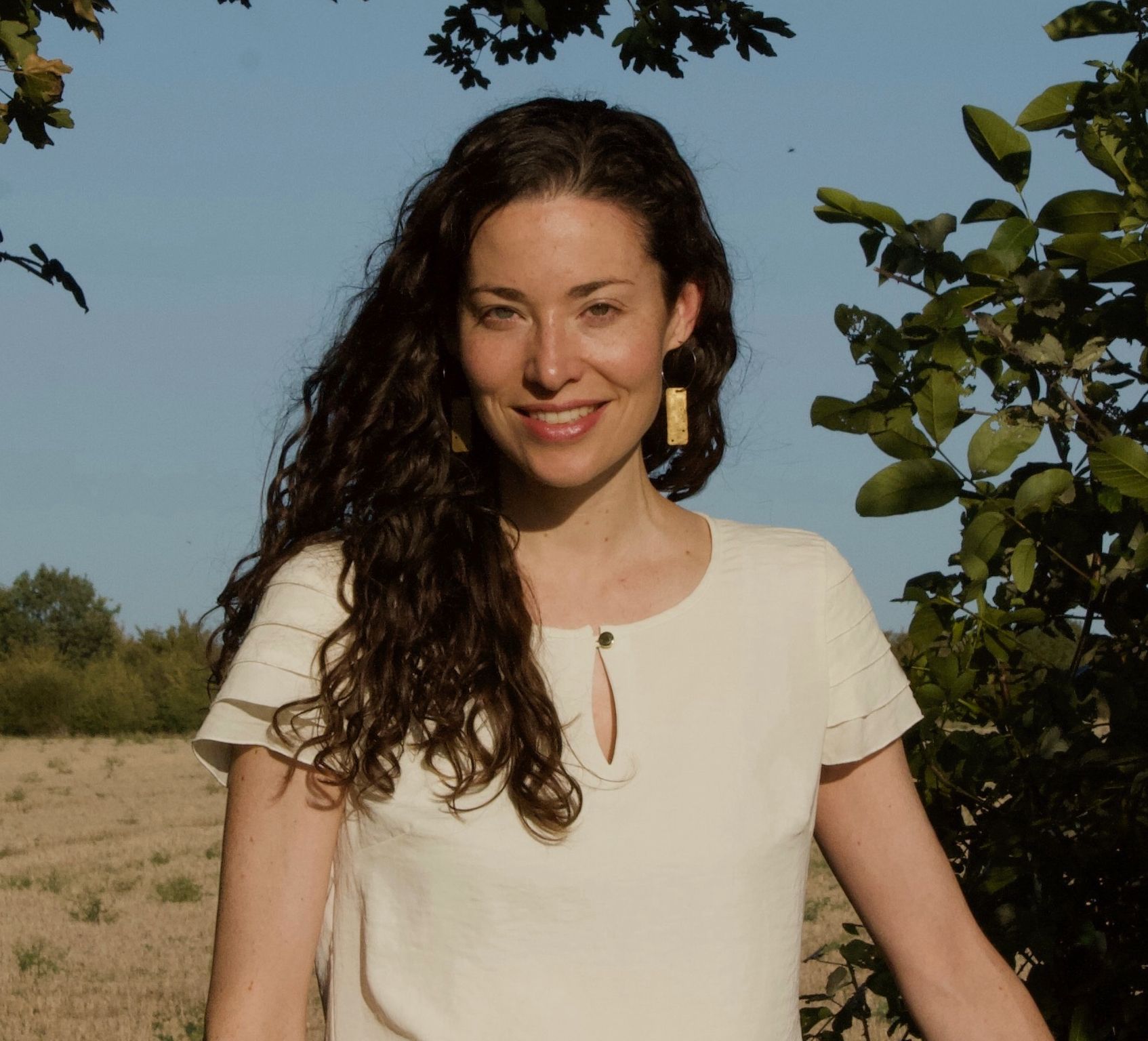 Science History PodcastIndustrial Agriculture: Helen Anne CurryThe advent of agriculture over 10,000 years ago forever altered the trajectory of humanity. Communities grew larger until cities and nations dotted the landscape, labor became specialized, new diseases emerged, civilizations flourished and vanished, warfare increased in scale and lethality, and people colonized every corner of the globe. Agriculture facilitated the exponential growth of the human population, which necessitated ever greater efficiency and productivity and eventually led to the industrialization of farming. But this efficiency has come at a cost – the loss of crop varieties and the local knowledge and cultural practices associated with those crops. With us to understand th...2022-04-111h 53
Science History PodcastIndustrial Agriculture: Helen Anne CurryThe advent of agriculture over 10,000 years ago forever altered the trajectory of humanity. Communities grew larger until cities and nations dotted the landscape, labor became specialized, new diseases emerged, civilizations flourished and vanished, warfare increased in scale and lethality, and people colonized every corner of the globe. Agriculture facilitated the exponential growth of the human population, which necessitated ever greater efficiency and productivity and eventually led to the industrialization of farming. But this efficiency has come at a cost – the loss of crop varieties and the local knowledge and cultural practices associated with those crops. With us to understand th...2022-04-111h 53 Science History PodcastNeurological Disorders: Sara Manning PeskinThe brain is the most mysterious and complex organ of the body, and when things go awry, we may be confronted with personal tragedy and we may gain insights on what it means to be human. With us to discuss neurological disorders and the history of their discovery is Sara Manning Peskin. Sara completed an AB in biochemistry at Harvard University in 2009, an MS in cellular and molecular biology at the University of Pennsylvania in 2013, and an MD also at U Penn in 2015. She completed postgraduate training and a fellowship in various aspects of neurology also at U Penn...2022-03-111h 18
Science History PodcastNeurological Disorders: Sara Manning PeskinThe brain is the most mysterious and complex organ of the body, and when things go awry, we may be confronted with personal tragedy and we may gain insights on what it means to be human. With us to discuss neurological disorders and the history of their discovery is Sara Manning Peskin. Sara completed an AB in biochemistry at Harvard University in 2009, an MS in cellular and molecular biology at the University of Pennsylvania in 2013, and an MD also at U Penn in 2015. She completed postgraduate training and a fellowship in various aspects of neurology also at U Penn...2022-03-111h 18 Science History PodcastEcological Economics: Herman DalyNothing is so intertwined with human success and folly as economics. The economy, for better or for worse, drives much of our fate from our household budget to our national policies to the outbreak of war. But economic activity also has profound effects on the environment and a close inspection of economics opens the question of whether humans can live sustainably on the only planet we have. The field of economics that focuses on sustainability and the environmental costs of economic activity is ecological economics. With us to discuss this field is one of its founders, Herman Daly. Herman...2022-02-111h 36
Science History PodcastEcological Economics: Herman DalyNothing is so intertwined with human success and folly as economics. The economy, for better or for worse, drives much of our fate from our household budget to our national policies to the outbreak of war. But economic activity also has profound effects on the environment and a close inspection of economics opens the question of whether humans can live sustainably on the only planet we have. The field of economics that focuses on sustainability and the environmental costs of economic activity is ecological economics. With us to discuss this field is one of its founders, Herman Daly. Herman...2022-02-111h 36 Science History PodcastSpace & the Sixties: Neil MaherThe 60s hosted the space race between the United States and the Soviet Union, which occurred in the midst of the Vietnam War, the Cold War, and civil unrest. How did the culture wars of the 1960s relate to the space race, especially in the United States? How did the Civil Rights Movement, the New Left, environmentalism, the women’s movement, and the Hippie counterculture influence NASA, and vice versa? With us to answer these questions is Neil Maher. Neil received a B.A. in history from Dartmouth College in 1986, an MA in U.S. history from New York Un...2022-01-111h 05
Science History PodcastSpace & the Sixties: Neil MaherThe 60s hosted the space race between the United States and the Soviet Union, which occurred in the midst of the Vietnam War, the Cold War, and civil unrest. How did the culture wars of the 1960s relate to the space race, especially in the United States? How did the Civil Rights Movement, the New Left, environmentalism, the women’s movement, and the Hippie counterculture influence NASA, and vice versa? With us to answer these questions is Neil Maher. Neil received a B.A. in history from Dartmouth College in 1986, an MA in U.S. history from New York Un...2022-01-111h 05 Science History PodcastArmament & Disarmament: Richard GarwinToday’s episode marks the four-year anniversary of the Science History Podcast, where we have explored all manner of science and relevant policy spanning from gravitational waves to bioterrorism. So it is fitting that today’s guest, Dick Garwin, has worked on just about every major scientific and technology problem with a defense application since just after the Second World War, ranging from the first thermonuclear weapon in 1951 all the way to the U.S. response to pandemics. Today we discuss it all, including space nuclear detonations and electromagnetic pulses, spy satellites, anti-submarine warfare, sequential memory for computers, magnetic reso...2021-12-113h 55
Science History PodcastArmament & Disarmament: Richard GarwinToday’s episode marks the four-year anniversary of the Science History Podcast, where we have explored all manner of science and relevant policy spanning from gravitational waves to bioterrorism. So it is fitting that today’s guest, Dick Garwin, has worked on just about every major scientific and technology problem with a defense application since just after the Second World War, ranging from the first thermonuclear weapon in 1951 all the way to the U.S. response to pandemics. Today we discuss it all, including space nuclear detonations and electromagnetic pulses, spy satellites, anti-submarine warfare, sequential memory for computers, magnetic reso...2021-12-113h 55 Science History PodcastNuclear Disarmament: Zia MianToday we explore the history of nuclear disarmament with Zia Mian. Zia is a physicist and co-director of Princeton’s Program on Science and Global Security, part of the School of Public and International Affairs, where he has worked since 1997. His research interests include issues of nuclear arms control, nonproliferation and disarmament, and international peace and security. Zia is co-editor of the journal Science & Global Security, and he is the co-author of Unmaking the Bomb, published by MIT Press in 2014. He is also co-chair of the International Panel on Fissile Materials. Zia received the 2014 Linus Pauling Legacy Award for “his...2021-11-112h 40
Science History PodcastNuclear Disarmament: Zia MianToday we explore the history of nuclear disarmament with Zia Mian. Zia is a physicist and co-director of Princeton’s Program on Science and Global Security, part of the School of Public and International Affairs, where he has worked since 1997. His research interests include issues of nuclear arms control, nonproliferation and disarmament, and international peace and security. Zia is co-editor of the journal Science & Global Security, and he is the co-author of Unmaking the Bomb, published by MIT Press in 2014. He is also co-chair of the International Panel on Fissile Materials. Zia received the 2014 Linus Pauling Legacy Award for “his...2021-11-112h 40 Science History PodcastThe Demarcation Problem: Michael GordinHow do we distinguish real science from hogwash? How does real science evolve over time into pseudoscience? Why will science always be plagued with sister movements on the fringe that make us cringe? With us to explore these topics and their relationship to the demarcation problem is Michael Gordin. Michael is the Rosengarten Professor of Modern and Contemporary History and the director of the Society of Fellows in the Liberal Arts at Princeton University. He specializes in the history of modern science in Russia, Europe, and North America, especially issues related to the history of fringe science, the early...2021-10-101h 44
Science History PodcastThe Demarcation Problem: Michael GordinHow do we distinguish real science from hogwash? How does real science evolve over time into pseudoscience? Why will science always be plagued with sister movements on the fringe that make us cringe? With us to explore these topics and their relationship to the demarcation problem is Michael Gordin. Michael is the Rosengarten Professor of Modern and Contemporary History and the director of the Society of Fellows in the Liberal Arts at Princeton University. He specializes in the history of modern science in Russia, Europe, and North America, especially issues related to the history of fringe science, the early...2021-10-101h 44 Science History PodcastUnsettled Research: Mark LytleUncertainty is inherent to science and exploited by those who wish to stymie regulations that would promote environmental quality and public health. Chemical companies, oil companies, tobacco companies, and many others, kept their products on the marketplace and promoted consumerism by stressing the unsettled nature of research. With us to explore this history, and how it relates to the environment and public health, is Mark Lytle. Mark is among those historians seeking to develop the field of “Environmental Diplomacy.” The author of The Origins of the Iranian-American Alliance, 1941-1953, he began his career as a student of American relations with...2021-09-112h 33
Science History PodcastUnsettled Research: Mark LytleUncertainty is inherent to science and exploited by those who wish to stymie regulations that would promote environmental quality and public health. Chemical companies, oil companies, tobacco companies, and many others, kept their products on the marketplace and promoted consumerism by stressing the unsettled nature of research. With us to explore this history, and how it relates to the environment and public health, is Mark Lytle. Mark is among those historians seeking to develop the field of “Environmental Diplomacy.” The author of The Origins of the Iranian-American Alliance, 1941-1953, he began his career as a student of American relations with...2021-09-112h 33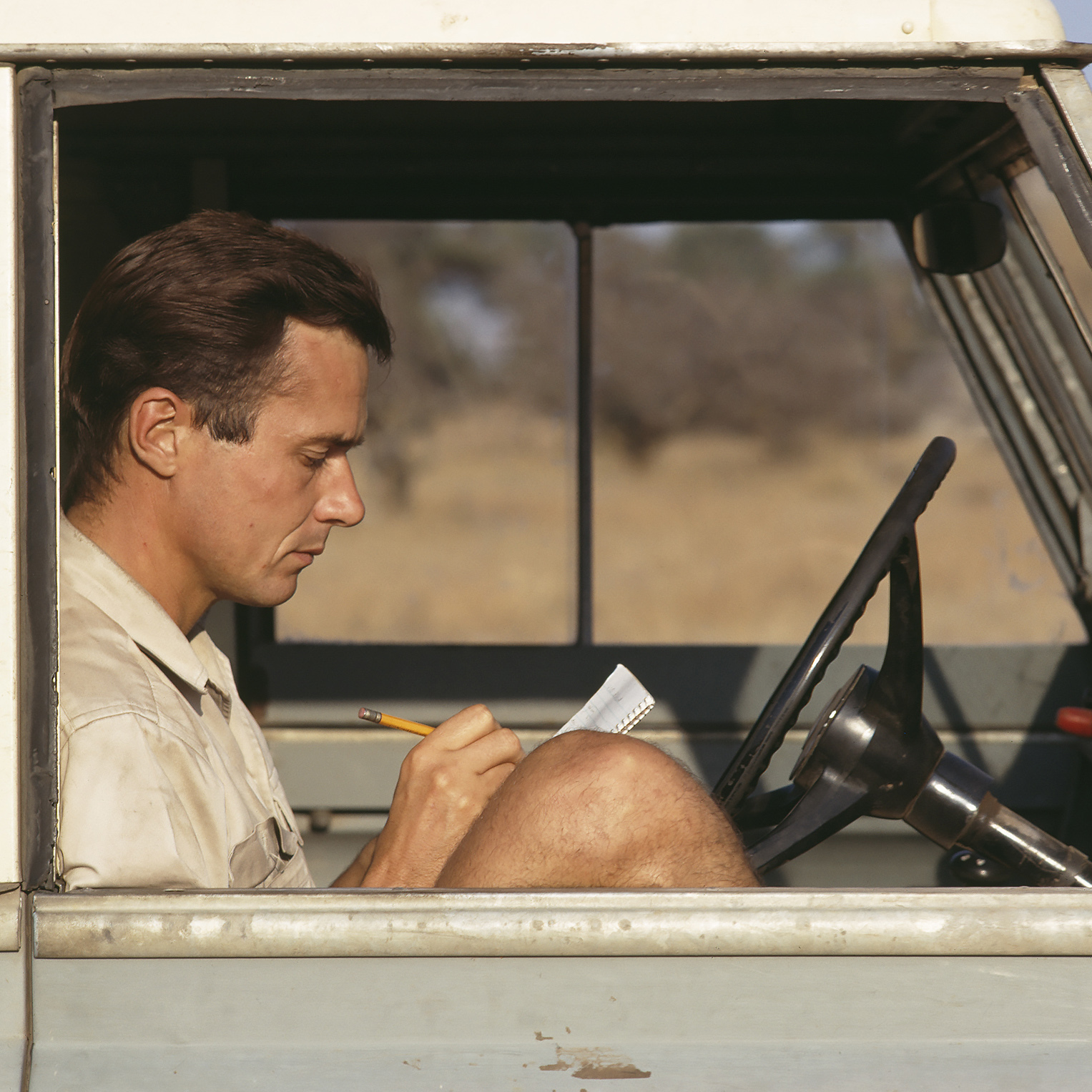 Science History PodcastWildlife Biology: George SchallerThe study of wildlife has a history full of adventures in remote corners of the Earth, discoveries of remarkable behaviors, and achievements in conservation. George Schaller is a pioneer of the field, with seven decades of work spanning from the Arctic to the Tropics. George was born in Germany in 1933 and immigrated to the United States as a teenager. He received a BS degree from the University of Alaska in 1955 and a PhD from the University of Wisconsin, Madison in 1962. He then held positions at Stanford University and Johns Hopkins University before working as a research associate for the...2021-08-111h 02
Science History PodcastWildlife Biology: George SchallerThe study of wildlife has a history full of adventures in remote corners of the Earth, discoveries of remarkable behaviors, and achievements in conservation. George Schaller is a pioneer of the field, with seven decades of work spanning from the Arctic to the Tropics. George was born in Germany in 1933 and immigrated to the United States as a teenager. He received a BS degree from the University of Alaska in 1955 and a PhD from the University of Wisconsin, Madison in 1962. He then held positions at Stanford University and Johns Hopkins University before working as a research associate for the...2021-08-111h 02 Science History PodcastChemical Sense & Nonsense: Joe SchwarczThe history of science is punctuated by both the greatest achievements and the greatest tragedies of human endeavors. The development of organic chemistry illustrates this dichotomy, as some scientists improved the human condition while others facilitated the horrors of genocide. The guise of chemistry also has served as a useful front for fraudsters. With us to illuminate chemical accidents, brilliant discoveries, searing evils, and the use and misuse of organic chemistry is Joe Schwarcz. Joe was born in Hungary in 1947. His family escaped to Austria during the 1956 Hungarian uprising, and from there immigrated to Quebec. Joe received BS and...2021-07-111h 41
Science History PodcastChemical Sense & Nonsense: Joe SchwarczThe history of science is punctuated by both the greatest achievements and the greatest tragedies of human endeavors. The development of organic chemistry illustrates this dichotomy, as some scientists improved the human condition while others facilitated the horrors of genocide. The guise of chemistry also has served as a useful front for fraudsters. With us to illuminate chemical accidents, brilliant discoveries, searing evils, and the use and misuse of organic chemistry is Joe Schwarcz. Joe was born in Hungary in 1947. His family escaped to Austria during the 1956 Hungarian uprising, and from there immigrated to Quebec. Joe received BS and...2021-07-111h 41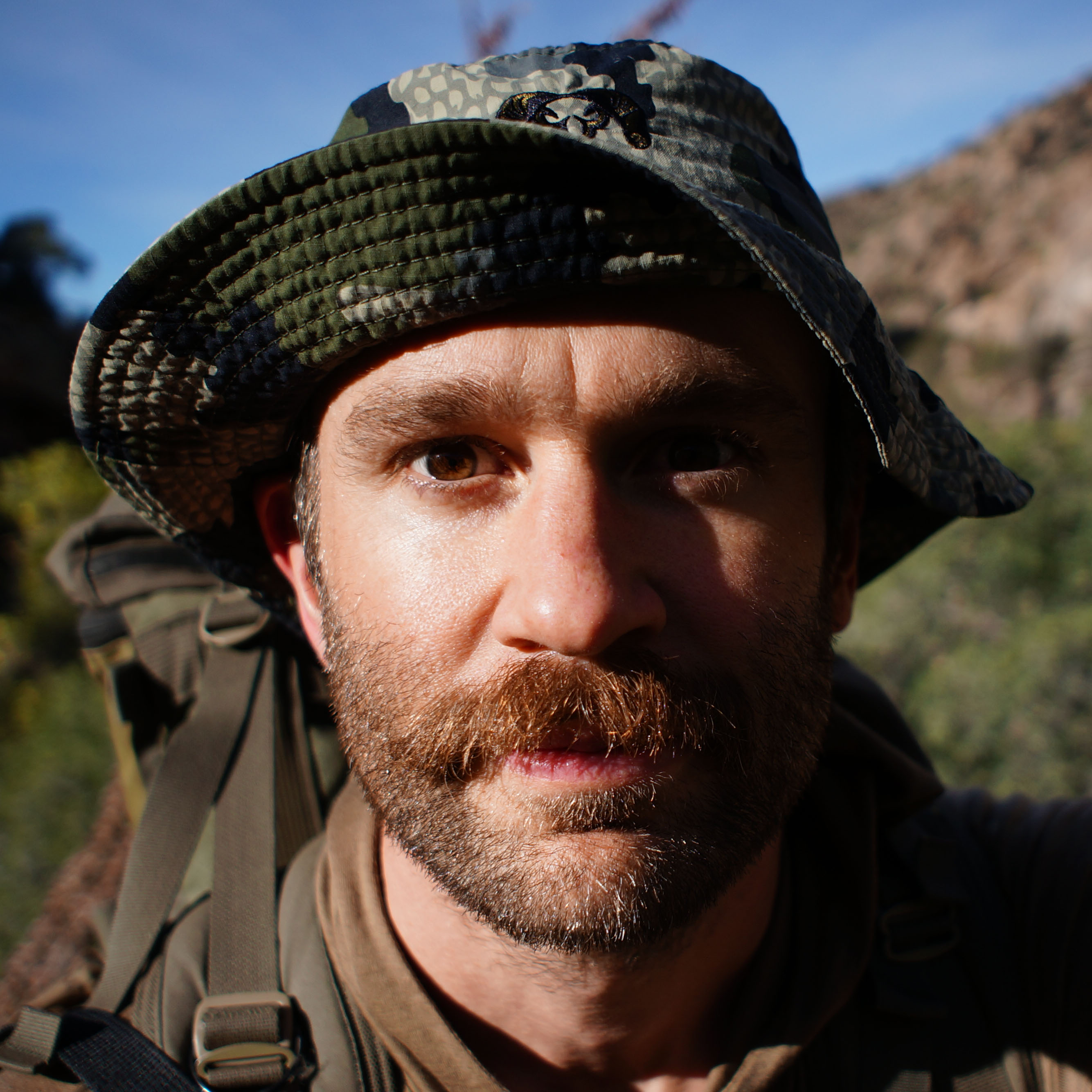 Science History PodcastNumber Theory: Bryden CaisThe history of mathematics extends back millennia. The needs of trade, taxation, and time-keeping drove the development of principles of arithmetic, algebra, and geometry, which had already acquired some sophistication by 5,000 years ago. Perhaps most fundamental to the development of mathematics has been discoveries on the nature of numbers themselves, or what mathematicians refer to as Number Theory. Today’s topic is the history and development of Number Theory, viewed through the lens of numbers and number systems. Our guide to Number Theory is Bryden Cais, professor of mathematics at the University of Arizona and the Director of the So...2021-06-111h 58
Science History PodcastNumber Theory: Bryden CaisThe history of mathematics extends back millennia. The needs of trade, taxation, and time-keeping drove the development of principles of arithmetic, algebra, and geometry, which had already acquired some sophistication by 5,000 years ago. Perhaps most fundamental to the development of mathematics has been discoveries on the nature of numbers themselves, or what mathematicians refer to as Number Theory. Today’s topic is the history and development of Number Theory, viewed through the lens of numbers and number systems. Our guide to Number Theory is Bryden Cais, professor of mathematics at the University of Arizona and the Director of the So...2021-06-111h 58 Science History PodcastEuclid’s Elements: David AchesonThe most important book in the history of mathematics is Euclid’s Elements. The book – really 13 short books bound together into a single treatise – dates to approximately 300 BC, and is credited to the Greek mathematician Euclid of Alexandria. It is apparently a compendium and expansion of the work of previous Greek mathematicians, such as Pythagoras, Hippocrates of Chios, and Eudoxus of Cnidus. The Elements is the oldest surviving logical treatment of mathematics as a discipline, and its theorems and constructions are central to the history of scientific discovery and logic. It is likely that only the Bible has been issued...2021-05-111h 47
Science History PodcastEuclid’s Elements: David AchesonThe most important book in the history of mathematics is Euclid’s Elements. The book – really 13 short books bound together into a single treatise – dates to approximately 300 BC, and is credited to the Greek mathematician Euclid of Alexandria. It is apparently a compendium and expansion of the work of previous Greek mathematicians, such as Pythagoras, Hippocrates of Chios, and Eudoxus of Cnidus. The Elements is the oldest surviving logical treatment of mathematics as a discipline, and its theorems and constructions are central to the history of scientific discovery and logic. It is likely that only the Bible has been issued...2021-05-111h 47 Science History PodcastGalileo’s Dialogue: John HeilbronGalileo occupies an inflection point in the history of science and society. Born in 1564, Galileo changed the trajectory of science though his work in astronomy, physics and related fields. He invented various clever devices, and he used the telescope to push the boundaries of knowledge about our solar system and Earth’s place in it. Galileo’s discoveries, and the manner in which he presented them in his 1632 book Dialogue Concerning the Two Chief World Systems, hurled his fate into the judgements of the Roman Inquisition. Galileo recanted after he was found “vehemently suspect of heresy”. The inquisitors sentenced Galileo...2021-04-111h 29
Science History PodcastGalileo’s Dialogue: John HeilbronGalileo occupies an inflection point in the history of science and society. Born in 1564, Galileo changed the trajectory of science though his work in astronomy, physics and related fields. He invented various clever devices, and he used the telescope to push the boundaries of knowledge about our solar system and Earth’s place in it. Galileo’s discoveries, and the manner in which he presented them in his 1632 book Dialogue Concerning the Two Chief World Systems, hurled his fate into the judgements of the Roman Inquisition. Galileo recanted after he was found “vehemently suspect of heresy”. The inquisitors sentenced Galileo...2021-04-111h 29 Science History PodcastH.M.S. Challenger: Doug MacdougallThe creation of a new discipline based upon a single scientific expedition is a rare occurrence, but this is what resulted from the 1872-1876 expedition of H.M.S. Challenger. With us to explain the history and significance of the Challenger Expedition is Doug Macdougall. Doug is a geochemist who received a BS in geology from the University of Toronto, an MS in geology from McMaster University, and a PhD in Earth Sciences from the Scripps Institution of Oceanography at the University of California, San Diego. After a two-year postdoc in physics at the University of California, Berkeley, Doug...2021-03-111h 16
Science History PodcastH.M.S. Challenger: Doug MacdougallThe creation of a new discipline based upon a single scientific expedition is a rare occurrence, but this is what resulted from the 1872-1876 expedition of H.M.S. Challenger. With us to explain the history and significance of the Challenger Expedition is Doug Macdougall. Doug is a geochemist who received a BS in geology from the University of Toronto, an MS in geology from McMaster University, and a PhD in Earth Sciences from the Scripps Institution of Oceanography at the University of California, San Diego. After a two-year postdoc in physics at the University of California, Berkeley, Doug...2021-03-111h 16 Science History PodcastReproductive Health: Shanna SwanIn the early 1990s, scientists discovered that sperm counts in industrialized countries had declined precipitously over the previous half century. It turns out that the incidence of other reproductive health problems beyond male infertility also increased in the latter part of the 20th century and into the 21st century. With us to discuss human reproductive health, and how it has changed in part due to exposure to pollutants, is Shanna Swan. Shanna received her BS in mathematics at the City College of New York, her MS in biostatistics at Columbia University, and her PhD in statistics at the University...2021-02-1149 min
Science History PodcastReproductive Health: Shanna SwanIn the early 1990s, scientists discovered that sperm counts in industrialized countries had declined precipitously over the previous half century. It turns out that the incidence of other reproductive health problems beyond male infertility also increased in the latter part of the 20th century and into the 21st century. With us to discuss human reproductive health, and how it has changed in part due to exposure to pollutants, is Shanna Swan. Shanna received her BS in mathematics at the City College of New York, her MS in biostatistics at Columbia University, and her PhD in statistics at the University...2021-02-1149 min Science History PodcastFalsifiability: Sean CarrollThe boundaries of science are clear, and can be demarcated by the concept of falsifiability. Or so we learn in our science classes. But with some areas of science, falsifiability is not the critical feature, and may be impossible on theoretical or empirical grounds. Worrying about falsifiability might even get in the way of interesting ideas. With us to discuss the history of problems in science and falsifiability is Sean Carroll, a leading physicist and science communicator. Sean received a BS in astronomy and astrophysics from Villanova University in 1988, and a PhD in astronomy from Harvard University in 1993. He...2021-01-111h 27
Science History PodcastFalsifiability: Sean CarrollThe boundaries of science are clear, and can be demarcated by the concept of falsifiability. Or so we learn in our science classes. But with some areas of science, falsifiability is not the critical feature, and may be impossible on theoretical or empirical grounds. Worrying about falsifiability might even get in the way of interesting ideas. With us to discuss the history of problems in science and falsifiability is Sean Carroll, a leading physicist and science communicator. Sean received a BS in astronomy and astrophysics from Villanova University in 1988, and a PhD in astronomy from Harvard University in 1993. He...2021-01-111h 27 Paul Saladino MD podcast83. How our love affair with toxic chemicals is killing us, with Frank Von Hippel PhDFrank A. von Hippel is a professor of ecotoxicology at Northern Arizona University. Frank was born and raised in Alaska, received his A.B. in biology at Dartmouth College in 1989, and his Ph.D. in integrative biology at the University of California, Berkeley in 1996. He taught for Columbia University (1996-1999) and the University of Alaska Anchorage (2000-2016) before moving to Arizona in 2016. Frank has taught ecology field courses in over twenty countries, and conducted research in the Americas, Africa and Australia. Frank’s research has been widely covered in the press, including The New York Times, National Public Radio, The...2020-12-142h 07
Paul Saladino MD podcast83. How our love affair with toxic chemicals is killing us, with Frank Von Hippel PhDFrank A. von Hippel is a professor of ecotoxicology at Northern Arizona University. Frank was born and raised in Alaska, received his A.B. in biology at Dartmouth College in 1989, and his Ph.D. in integrative biology at the University of California, Berkeley in 1996. He taught for Columbia University (1996-1999) and the University of Alaska Anchorage (2000-2016) before moving to Arizona in 2016. Frank has taught ecology field courses in over twenty countries, and conducted research in the Americas, Africa and Australia. Frank’s research has been widely covered in the press, including The New York Times, National Public Radio, The...2020-12-142h 07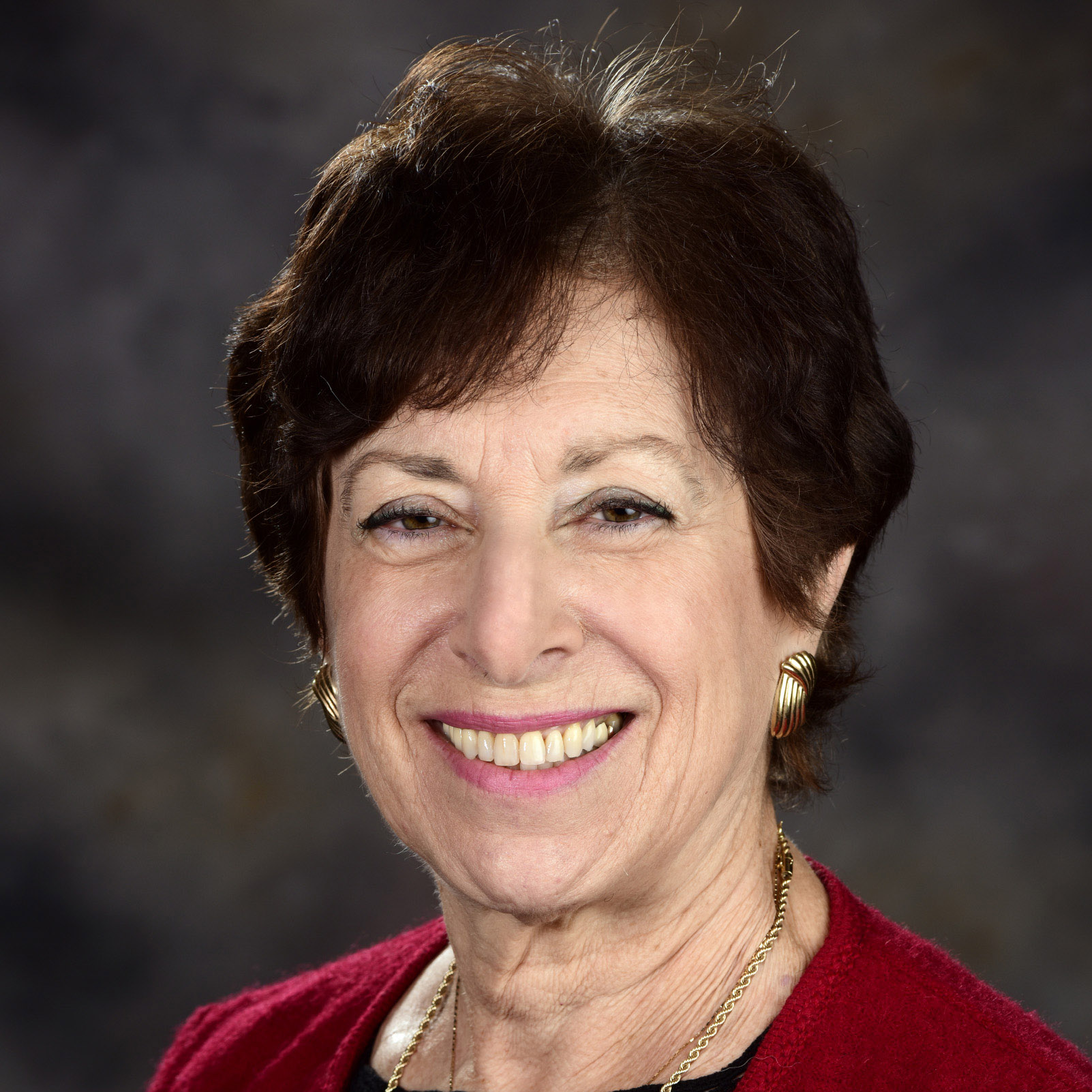 Science History PodcastEnvironmental Health: Linda BirnbaumHuman health and environmental health are inextricably linked. We are negatively impacted by the same pollutants that harm other organisms, and we all live in a sea of synthetic chemicals that are part of our food supply, personal care products, the built environment, and just about every aspect of our lives. With us to gain a better understanding of the history of environmental health, especially the impact of pollutants on human health, is Linda Birnbaum. Linda received a B.A. in biology from the University of Rochester in 1967, and M.S. and Ph.D. degrees in microbiology from the...2020-12-111h 08
Science History PodcastEnvironmental Health: Linda BirnbaumHuman health and environmental health are inextricably linked. We are negatively impacted by the same pollutants that harm other organisms, and we all live in a sea of synthetic chemicals that are part of our food supply, personal care products, the built environment, and just about every aspect of our lives. With us to gain a better understanding of the history of environmental health, especially the impact of pollutants on human health, is Linda Birnbaum. Linda received a B.A. in biology from the University of Rochester in 1967, and M.S. and Ph.D. degrees in microbiology from the...2020-12-111h 08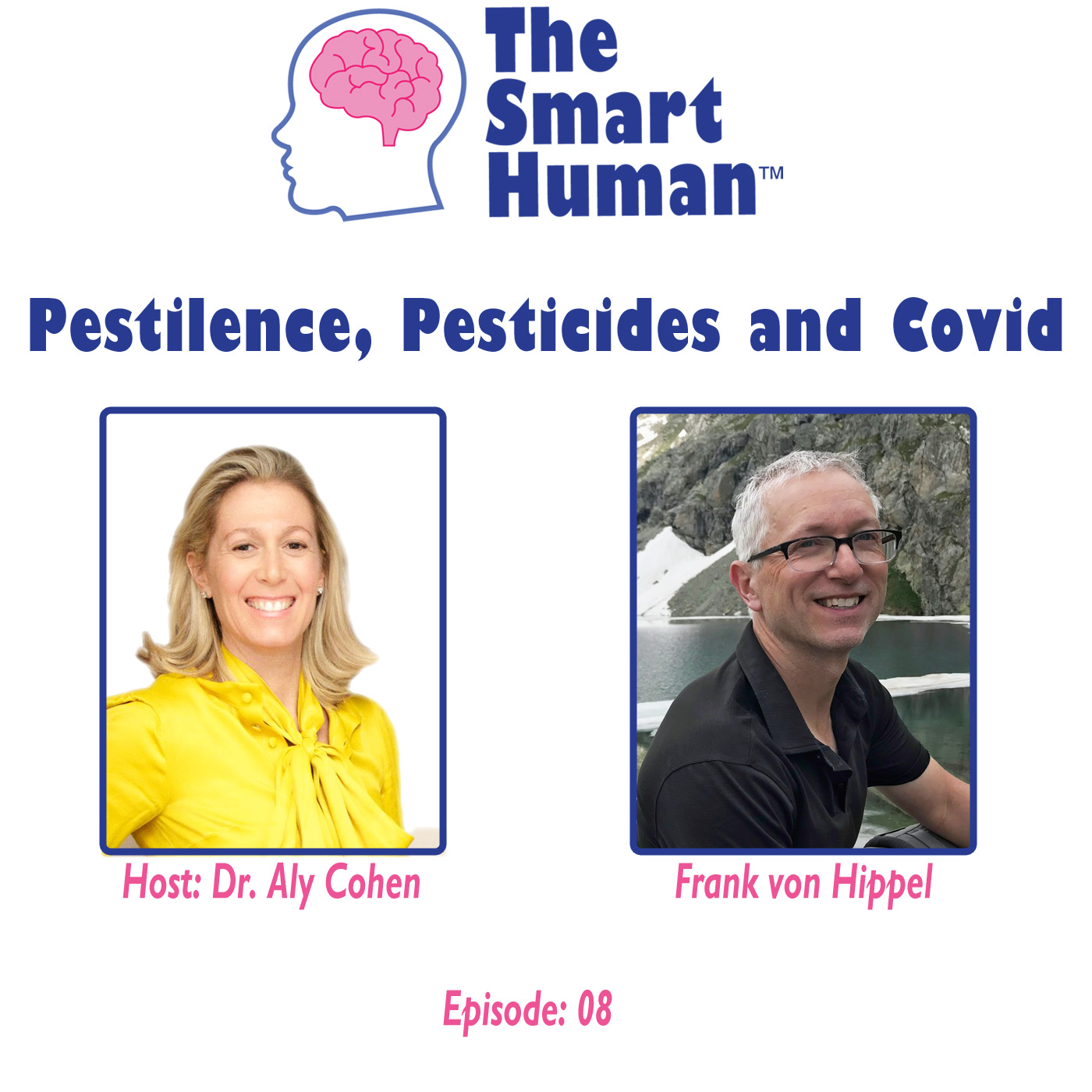 The Smart Human with Dr. Aly CohenPestilence, Pesticides and Covid with Frank von HippelResources/Links: https://www.amazon.com/Chemical-Age-Chemists-Millions-Relationship/dp/022669724X/ref=sr_1_1?dchild=1&qid=1606601474&refinements=p_27%3AFrank+A.+von+Hippel&s=books&sr=1-1 https://podcasts.apple.com/us/podcast/science-history-podcast/id1325288920 https://frankvonhippel.github.io Frank A. von Hippel is a professor of ecotoxicology at Northern Arizona University. Frank was born and raised in Alaska, received his A.B. in biology at Dartmouth College in 1989, and his Ph.D. in integrative biology at the University of California, Berkeley in 1996. He taught for Columbia University (1996-1999) and the University of Alaska Anchorage (2000...2020-11-2858 min
The Smart Human with Dr. Aly CohenPestilence, Pesticides and Covid with Frank von HippelResources/Links: https://www.amazon.com/Chemical-Age-Chemists-Millions-Relationship/dp/022669724X/ref=sr_1_1?dchild=1&qid=1606601474&refinements=p_27%3AFrank+A.+von+Hippel&s=books&sr=1-1 https://podcasts.apple.com/us/podcast/science-history-podcast/id1325288920 https://frankvonhippel.github.io Frank A. von Hippel is a professor of ecotoxicology at Northern Arizona University. Frank was born and raised in Alaska, received his A.B. in biology at Dartmouth College in 1989, and his Ph.D. in integrative biology at the University of California, Berkeley in 1996. He taught for Columbia University (1996-1999) and the University of Alaska Anchorage (2000...2020-11-2858 min Science History PodcastDark Money: David MichaelsHow is it that corporations routinely and successfully obfuscate science and seed public doubt on issues of paramount importance, ranging from climate change to health effects of tobacco and pesticides? Who are the scientists for hire whose job is to muddy the waters on important policy issues? Why doesn’t our government protect us from nefarious corporations that threaten our health and the environment, and how can we change regulatory ethics to favor the public interest? With us to answer these questions is my guest, David Michaels. David is a professor of epidemiology in the Department of En...2020-11-111h 34
Science History PodcastDark Money: David MichaelsHow is it that corporations routinely and successfully obfuscate science and seed public doubt on issues of paramount importance, ranging from climate change to health effects of tobacco and pesticides? Who are the scientists for hire whose job is to muddy the waters on important policy issues? Why doesn’t our government protect us from nefarious corporations that threaten our health and the environment, and how can we change regulatory ethics to favor the public interest? With us to answer these questions is my guest, David Michaels. David is a professor of epidemiology in the Department of En...2020-11-111h 34 Science History PodcastThe Pentagon Papers: Daniel EllsbergWhistleblowers are admired or vilified. They are saviors of democracy or traitors to their country. They confront those in power and drive the news, and some, such as Edward Snowden and Chelsea Manning, are household names. But one man is their inspiration, the person who made whistleblowing a phenomenon of modern times, and his name is Daniel Ellsberg. Ellsberg was born in 1931 in Chicago and grew up in Detroit. He graduated with honors from Harvard with an AB in economics in 1952, and then studied at the University of Cambridge. He served in the U.S. Marine Corps from 1954-1957...2020-10-112h 42
Science History PodcastThe Pentagon Papers: Daniel EllsbergWhistleblowers are admired or vilified. They are saviors of democracy or traitors to their country. They confront those in power and drive the news, and some, such as Edward Snowden and Chelsea Manning, are household names. But one man is their inspiration, the person who made whistleblowing a phenomenon of modern times, and his name is Daniel Ellsberg. Ellsberg was born in 1931 in Chicago and grew up in Detroit. He graduated with honors from Harvard with an AB in economics in 1952, and then studied at the University of Cambridge. He served in the U.S. Marine Corps from 1954-1957...2020-10-112h 42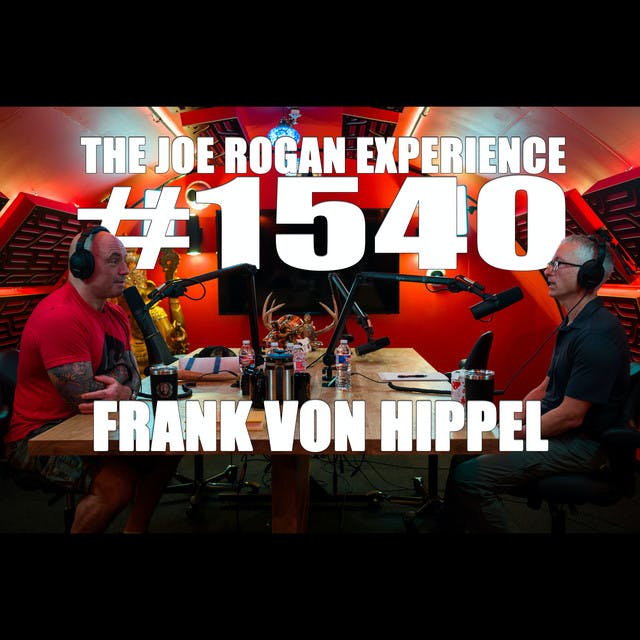 The Joe Rogan Experience#1540 - Frank von HippelFrank A. Von Hippel is an expert in ecotoxicology: the study of how pollutants impact human health and the environment at large. A professor at Northern Arizona University, Von Hippel is the author of The Chemical Age: How Chemists Fought Famine and Disease, Killed Millions, and Changed Our Relationship with the Earth, and the host of The Science History Podcast. Learn more about your ad choices. Visit podcastchoices.com/adchoices2020-09-232h 42
The Joe Rogan Experience#1540 - Frank von HippelFrank A. Von Hippel is an expert in ecotoxicology: the study of how pollutants impact human health and the environment at large. A professor at Northern Arizona University, Von Hippel is the author of The Chemical Age: How Chemists Fought Famine and Disease, Killed Millions, and Changed Our Relationship with the Earth, and the host of The Science History Podcast. Learn more about your ad choices. Visit podcastchoices.com/adchoices2020-09-232h 42 Science History PodcastThe Chemical Age: Pete Myers & Frank von HippelPete Myers interviews me about my new book, The Chemical Age, published this month by the University of Chicago Press.2020-09-111h 22
Science History PodcastThe Chemical Age: Pete Myers & Frank von HippelPete Myers interviews me about my new book, The Chemical Age, published this month by the University of Chicago Press.2020-09-111h 22 Science History PodcastIndustrial Denial: Barbara FreeseWhy is it that decades after scientists discover problems of paramount importance, such as global climate change or lead pollution, those problems still persist? Why do corporations get away with producing products that harm human health or the environment? How do corporations shape our society, our politics, and even our psychology? With us to untangle these questions is my guest, Barbara Freese. Barbara is an author, energy policy advocate, and environmental attorney. After earning a law degree from New York University in 1986 she returned to her home state of Minnesota and spent a dozen years enforcing the state’s env...2020-08-111h 09
Science History PodcastIndustrial Denial: Barbara FreeseWhy is it that decades after scientists discover problems of paramount importance, such as global climate change or lead pollution, those problems still persist? Why do corporations get away with producing products that harm human health or the environment? How do corporations shape our society, our politics, and even our psychology? With us to untangle these questions is my guest, Barbara Freese. Barbara is an author, energy policy advocate, and environmental attorney. After earning a law degree from New York University in 1986 she returned to her home state of Minnesota and spent a dozen years enforcing the state’s env...2020-08-111h 09 Science History PodcastMaterials Science: Ainissa RamirezDiscoveries in basic science often translate into material goods, and frequently in surprising ways. Material goods, in turn, facilitate scientific progress. Therefore, science and technology advance in tandem. Today we delve into the history of materials science with the help of Ainissa Ramirez. Ainissa is a scientist and science communicator, and the author of The Alchemy of Us: How Humans and Matter Transformed One Another, published by MIT Press. 2020-07-1148 min
Science History PodcastMaterials Science: Ainissa RamirezDiscoveries in basic science often translate into material goods, and frequently in surprising ways. Material goods, in turn, facilitate scientific progress. Therefore, science and technology advance in tandem. Today we delve into the history of materials science with the help of Ainissa Ramirez. Ainissa is a scientist and science communicator, and the author of The Alchemy of Us: How Humans and Matter Transformed One Another, published by MIT Press. 2020-07-1148 min Science History PodcastScience & Poetry: Dava SobelToday we explore what mathematicians would refer to as the non-trivial intersection between science and poetry. Guiding us through these overlapping sets is a person uniquely suited to the task, the science writer Dava Sobel. Dava is the author of prominent and best-selling science history books, including Longitude, Galileo’s Daughter, The Planets, A More Perfect Heaven, and The Glass Universe. She is also the editor of Meter, the poetry series in Scientific American. Dava began her career as a science journalist in 1970. She worked as a science writer for the Cornell University News Bureau and as a reporter fo...2020-06-111h 04
Science History PodcastScience & Poetry: Dava SobelToday we explore what mathematicians would refer to as the non-trivial intersection between science and poetry. Guiding us through these overlapping sets is a person uniquely suited to the task, the science writer Dava Sobel. Dava is the author of prominent and best-selling science history books, including Longitude, Galileo’s Daughter, The Planets, A More Perfect Heaven, and The Glass Universe. She is also the editor of Meter, the poetry series in Scientific American. Dava began her career as a science journalist in 1970. She worked as a science writer for the Cornell University News Bureau and as a reporter fo...2020-06-111h 04 Public IntellectualThe Relationship Between Disease and War, with Frank A Von HippelFrank A von Hippel takes us through the surprising relationship of disease and war, from how the treatment of malaria facilitated colonialism, how weapons against disease carrying pests were used against human beings in war and riot, the development of tear gas, and the coming insect apocalypse. Support this podcast: http://patreon.com/publicintellectual http://jessacrispin.com2020-06-0836 min
Public IntellectualThe Relationship Between Disease and War, with Frank A Von HippelFrank A von Hippel takes us through the surprising relationship of disease and war, from how the treatment of malaria facilitated colonialism, how weapons against disease carrying pests were used against human beings in war and riot, the development of tear gas, and the coming insect apocalypse. Support this podcast: http://patreon.com/publicintellectual http://jessacrispin.com2020-06-0836 min Science History PodcastGlobal Amphibian Declines: David WakeFrogs have hopped around this planet for 200 million years. In comparison, anatomically modern humans have only been around for 200 thousand years. But the last half century has seen a tragic loss in amphibian biodiversity around the world. It seems especially striking that a group of animals that predate the dinosaurs have been devastated by modern human activities. With us today to discuss the history of discoveries in the area of amphibian declines is David Wake. David graduated from Pacific Lutheran College in 1958, and received M.S. and Ph.D. degrees from the University of Southern California in 1960 and 1964. He...2020-05-111h 00
Science History PodcastGlobal Amphibian Declines: David WakeFrogs have hopped around this planet for 200 million years. In comparison, anatomically modern humans have only been around for 200 thousand years. But the last half century has seen a tragic loss in amphibian biodiversity around the world. It seems especially striking that a group of animals that predate the dinosaurs have been devastated by modern human activities. With us today to discuss the history of discoveries in the area of amphibian declines is David Wake. David graduated from Pacific Lutheran College in 1958, and received M.S. and Ph.D. degrees from the University of Southern California in 1960 and 1964. He...2020-05-111h 00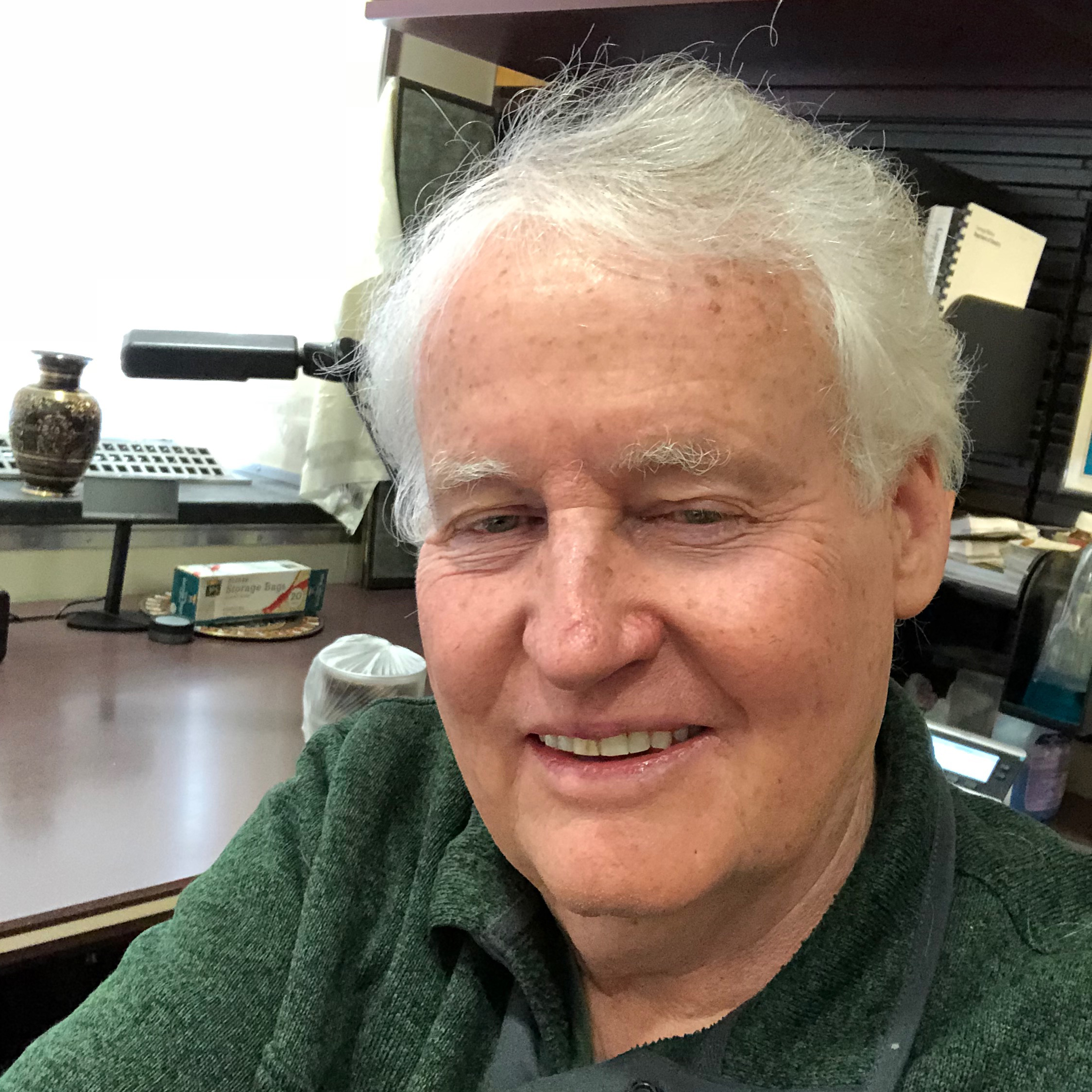 Science History PodcastGreen Chemistry: Terry CollinsChemistry has given the world the incredible diversity of fuels, pharmaceuticals, and household products that we rely on every day, along with tremendous advances in fighting infectious diseases and ensuring an abundant food supply. But the products of chemistry also include tens of thousands of toxic compounds that compromise human health, degrade the environment, and drive species to extinction. The advent of the modern environmental movement in the 1960s and 1970s produced a new field of chemistry dedicated to providing for the needs of society with less toxic and less environmentally damaging alternatives. This intellectual endeavor coalesced into the...2020-04-111h 43
Science History PodcastGreen Chemistry: Terry CollinsChemistry has given the world the incredible diversity of fuels, pharmaceuticals, and household products that we rely on every day, along with tremendous advances in fighting infectious diseases and ensuring an abundant food supply. But the products of chemistry also include tens of thousands of toxic compounds that compromise human health, degrade the environment, and drive species to extinction. The advent of the modern environmental movement in the 1960s and 1970s produced a new field of chemistry dedicated to providing for the needs of society with less toxic and less environmentally damaging alternatives. This intellectual endeavor coalesced into the...2020-04-111h 43 Science History PodcastEnvironmentalism: Paul EhrlichRachel Carson alerted the world to the dangers of pollution with the publication of her book Silent Spring in 1962, and in the process, she helped to launch the environmental movement. My guest, Paul Ehrlich, alerted the world to the dangers of human population growth and resource consumption with the publication of his book The Population Bomb in 1968, and in the process, he accelerated the environmental movement. He has played a major role in that movement ever since, authoring dozens of influential books and many more articles. Ehrlich received a bachelor’s degree from the University of Pennsylvania in 1953 and a...2020-03-111h 05
Science History PodcastEnvironmentalism: Paul EhrlichRachel Carson alerted the world to the dangers of pollution with the publication of her book Silent Spring in 1962, and in the process, she helped to launch the environmental movement. My guest, Paul Ehrlich, alerted the world to the dangers of human population growth and resource consumption with the publication of his book The Population Bomb in 1968, and in the process, he accelerated the environmental movement. He has played a major role in that movement ever since, authoring dozens of influential books and many more articles. Ehrlich received a bachelor’s degree from the University of Pennsylvania in 1953 and a...2020-03-111h 05 Science History PodcastBiodiversity: Thomas LovejoyGlobal biodiversity is in the midst of a mass extinction driven by rapid human population growth and over-consumption of resources. These forces drive habitat loss, pollution, invasive species, climate change, and the many other proximate causes of species losses. The study of these forces, and how they can be mitigated to preserve biodiversity, is the responsibility of scientists engaged in the field of conservation biology. My guest, Thomas Lovejoy, is a founding scientist of this field, and often referred to as the Godfather of Biodiversity. Tom received B.S. and Ph.D. degrees in biology at Yale. He then...2020-02-1141 min
Science History PodcastBiodiversity: Thomas LovejoyGlobal biodiversity is in the midst of a mass extinction driven by rapid human population growth and over-consumption of resources. These forces drive habitat loss, pollution, invasive species, climate change, and the many other proximate causes of species losses. The study of these forces, and how they can be mitigated to preserve biodiversity, is the responsibility of scientists engaged in the field of conservation biology. My guest, Thomas Lovejoy, is a founding scientist of this field, and often referred to as the Godfather of Biodiversity. Tom received B.S. and Ph.D. degrees in biology at Yale. He then...2020-02-1141 min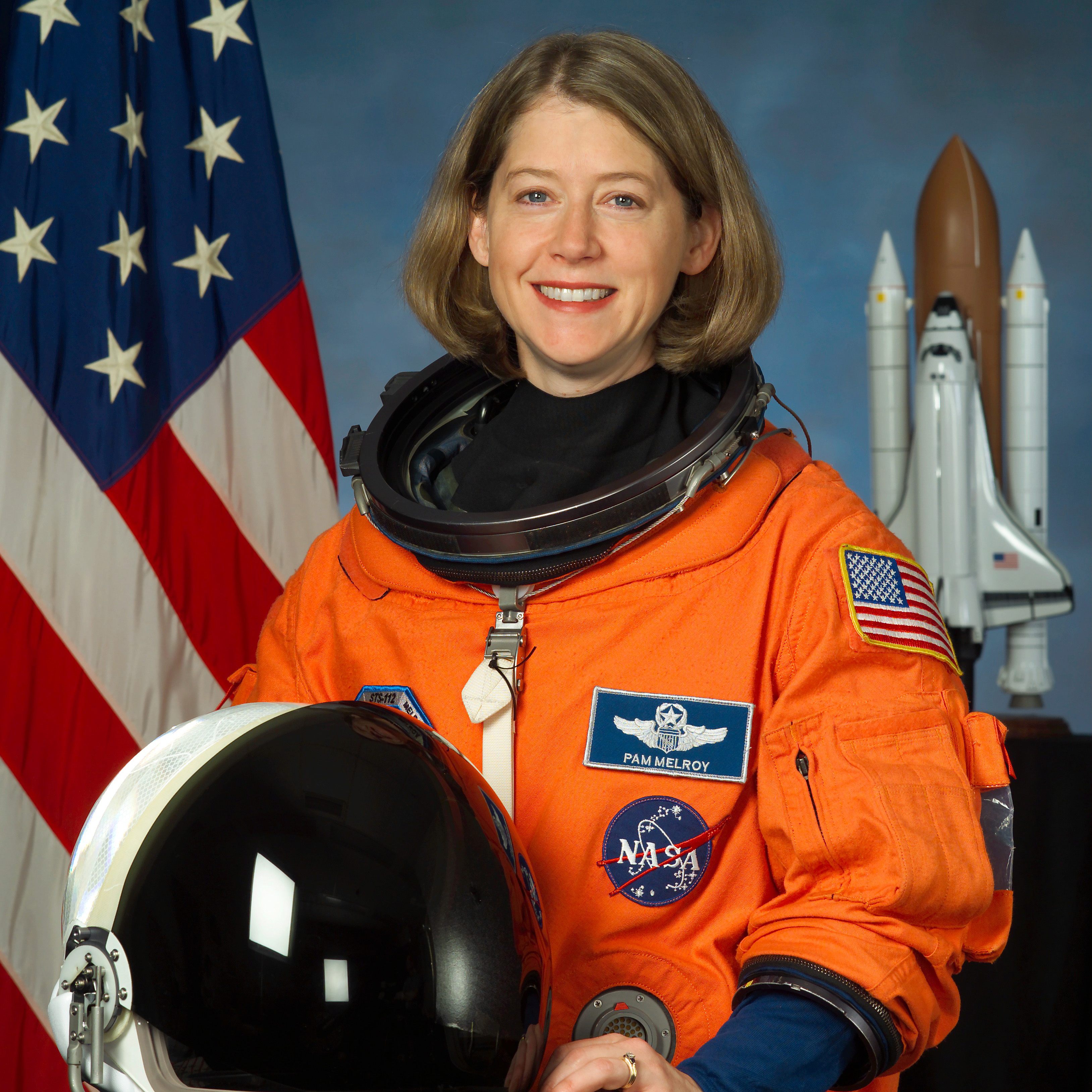 Science History PodcastSpace Science: Pam MelroySpace exploration thrills kids and adults alike. Today I discuss the history of NASA and space science with Pam Melroy. Pam piloted the Space Shuttle missions STS-92 in 2000 and STS-112 in 2002, and she commanded STS-120 in 2007. We discuss the Mercury, Gemini, Apollo and Apollo-Soyuz programs, the Mariner 9 mission, Landsat satellites, Skylab, the Space shuttle, and the International Space Station. We also discuss scientific advances achieved in space in telemedicine, microgravity and health, protein crystal growth and drug development, and materials science, as well as the future of space science.2019-12-1138 min
Science History PodcastSpace Science: Pam MelroySpace exploration thrills kids and adults alike. Today I discuss the history of NASA and space science with Pam Melroy. Pam piloted the Space Shuttle missions STS-92 in 2000 and STS-112 in 2002, and she commanded STS-120 in 2007. We discuss the Mercury, Gemini, Apollo and Apollo-Soyuz programs, the Mariner 9 mission, Landsat satellites, Skylab, the Space shuttle, and the International Space Station. We also discuss scientific advances achieved in space in telemedicine, microgravity and health, protein crystal growth and drug development, and materials science, as well as the future of space science.2019-12-1138 min Science History PodcastConservation of Freshwater Ecosystems: Ian HarrisonFreshwater ecosystems and their resident species have declined more rapidly than either terrestrial or marine systems and their species. Freshwater ecosystems face myriad stressors, from habitat loss and pollution to dams and climate change. Today I discuss the state of freshwater conservation science with Ian Harrison. Ian obtained his Ph.D. in systematic ichthyology at the University of Bristol in the UK. He has conducted research on marine and freshwater fishes in Europe, Central and South America, Africa, the Philippines, and the Central Pacific. He has worked for Conservation International and the IUCN’s Global Species Programme since 2008 and he...2019-11-1155 min
Science History PodcastConservation of Freshwater Ecosystems: Ian HarrisonFreshwater ecosystems and their resident species have declined more rapidly than either terrestrial or marine systems and their species. Freshwater ecosystems face myriad stressors, from habitat loss and pollution to dams and climate change. Today I discuss the state of freshwater conservation science with Ian Harrison. Ian obtained his Ph.D. in systematic ichthyology at the University of Bristol in the UK. He has conducted research on marine and freshwater fishes in Europe, Central and South America, Africa, the Philippines, and the Central Pacific. He has worked for Conservation International and the IUCN’s Global Species Programme since 2008 and he...2019-11-1155 min Science History PodcastHuman Evolutionary Genetics: Jason WilderDue to recent technological advances, scientists have revolutionized our understanding of human evolutionary history. What appeared to be a relatively simple story of divergence from ancient hominids is instead a tangled mess involving repeated cycles of divergence and hybridization between evolving human species. Today my guest is Jason Wilder, who researches human evolutionary genetics and genomics. We discuss the genetics of malaria resistance and parallel evolution, CCR5 deficiency and resistance to HIV infection, gene editing and the creation of designer babies, gene editing to treat disease, and introgression between modern humans and archaic forms, including Neanderthals and Denisovans. Jason...2019-10-1159 min
Science History PodcastHuman Evolutionary Genetics: Jason WilderDue to recent technological advances, scientists have revolutionized our understanding of human evolutionary history. What appeared to be a relatively simple story of divergence from ancient hominids is instead a tangled mess involving repeated cycles of divergence and hybridization between evolving human species. Today my guest is Jason Wilder, who researches human evolutionary genetics and genomics. We discuss the genetics of malaria resistance and parallel evolution, CCR5 deficiency and resistance to HIV infection, gene editing and the creation of designer babies, gene editing to treat disease, and introgression between modern humans and archaic forms, including Neanderthals and Denisovans. Jason...2019-10-1159 min Science History PodcastPlutonium: Frank N. von HippelToday we explore the history of plutonium with Frank von Hippel, a retired but always active professor at Princeton University, where, in 1975, he co-founded Princeton’s Program on Science and Global Security in the Woodrow Wilson School of Public and International Affairs. In the 1980s, Frank was the chairman of the Federation of American Scientists, and in the Clinton Administration he was the Assistant Director for National Security in the White House Office of Science and Technology Policy. Frank has worked on nuclear arms control and nonproliferation since the 1980s, and received many awards for this work, including a Ma...2019-08-111h 03
Science History PodcastPlutonium: Frank N. von HippelToday we explore the history of plutonium with Frank von Hippel, a retired but always active professor at Princeton University, where, in 1975, he co-founded Princeton’s Program on Science and Global Security in the Woodrow Wilson School of Public and International Affairs. In the 1980s, Frank was the chairman of the Federation of American Scientists, and in the Clinton Administration he was the Assistant Director for National Security in the White House Office of Science and Technology Policy. Frank has worked on nuclear arms control and nonproliferation since the 1980s, and received many awards for this work, including a Ma...2019-08-111h 03 Science History PodcastYellow Rain: Matthew MeselsonIn this supplemental episode with Matthew Meselson, I accepted his invitation to visit him in his office at Harvard, where we discussed yellow rain incidents in Southeast Asia. Meselson received his appointment as an Associate Professor of biology at Harvard in 1960 and his full professorship in 1964. He has been at Harvard ever since. Meselson has received many prominent awards throughout his career, including from the National Academy of Sciences, the Federation of American Scientists, the New York Academy of Sciences, and the Genetics Society of America, as well as the Guggenheim Fellowship and MacArthur Fellows Program Genius Award. 2019-06-1134 min
Science History PodcastYellow Rain: Matthew MeselsonIn this supplemental episode with Matthew Meselson, I accepted his invitation to visit him in his office at Harvard, where we discussed yellow rain incidents in Southeast Asia. Meselson received his appointment as an Associate Professor of biology at Harvard in 1960 and his full professorship in 1964. He has been at Harvard ever since. Meselson has received many prominent awards throughout his career, including from the National Academy of Sciences, the Federation of American Scientists, the New York Academy of Sciences, and the Genetics Society of America, as well as the Guggenheim Fellowship and MacArthur Fellows Program Genius Award. 2019-06-1134 min Science History PodcastHerbicidal Warfare: Matthew MeselsonMatthew Meselson organized the Herbicide Assessment Commission in 1970, which investigated the use of Agent Orange and other defoliants in Vietnam. The work of the commission helped to end Operation Ranch Hand, in which the United States sprayed nearly 20 million gallons – about 73 million liters - of herbicides and defoliants over the rainforest and mangrove forest canopies of Vietnam, Laos and Cambodia. I called Meselson to ask about his role in the Herbicide Assessment Commission, along with a host of other fascinating investigations to do with chemical and biological weapons, such as the anthrax accident in the Soviet Union and the ye...2019-05-112h 30
Science History PodcastHerbicidal Warfare: Matthew MeselsonMatthew Meselson organized the Herbicide Assessment Commission in 1970, which investigated the use of Agent Orange and other defoliants in Vietnam. The work of the commission helped to end Operation Ranch Hand, in which the United States sprayed nearly 20 million gallons – about 73 million liters - of herbicides and defoliants over the rainforest and mangrove forest canopies of Vietnam, Laos and Cambodia. I called Meselson to ask about his role in the Herbicide Assessment Commission, along with a host of other fascinating investigations to do with chemical and biological weapons, such as the anthrax accident in the Soviet Union and the ye...2019-05-112h 30 Science History PodcastForensic Science: Bruce BudowleHow did modern molecular biology become an integral component of forensic science? My guest, Bruce Budowle, played key roles in the development of genetic and microbial forensics, and he explains significant events in forensic science over the past four decades. Bruce joined the research unit of the FBI Laboratory Division in 1983 and rose in the ranks to become the Chief of the Forensic Science Research Unit and the Senior Scientist for the Laboratory Division. In 2009, Bruce left the FBI to become the Executive Director of the Institute of Applied Genomics at the University of North Texas Health Science Center...2019-03-111h 15
Science History PodcastForensic Science: Bruce BudowleHow did modern molecular biology become an integral component of forensic science? My guest, Bruce Budowle, played key roles in the development of genetic and microbial forensics, and he explains significant events in forensic science over the past four decades. Bruce joined the research unit of the FBI Laboratory Division in 1983 and rose in the ranks to become the Chief of the Forensic Science Research Unit and the Senior Scientist for the Laboratory Division. In 2009, Bruce left the FBI to become the Executive Director of the Institute of Applied Genomics at the University of North Texas Health Science Center...2019-03-111h 15 Science History PodcastAquaporins: Nobel Laureate Peter AgreOne of the greatest mysteries in biology, until 1991, was how water moves across cell membranes. Today’s episode focuses on the history of the discovery of aquaporins, or proteins that act as water channels in cell membranes. My guest is Peter Agre, recipient of the 2003 Nobel Prize in Chemistry for his discovery of aquaporins. Among many other honors and leadership roles across his career, Peter became a member of the U.S. National Academy of Sciences in 2000 and served as President of the American Association for the Advancement of Science from 2009-2010. He is the Bloomberg Distinguished Professor in Mo...2019-01-1127 min
Science History PodcastAquaporins: Nobel Laureate Peter AgreOne of the greatest mysteries in biology, until 1991, was how water moves across cell membranes. Today’s episode focuses on the history of the discovery of aquaporins, or proteins that act as water channels in cell membranes. My guest is Peter Agre, recipient of the 2003 Nobel Prize in Chemistry for his discovery of aquaporins. Among many other honors and leadership roles across his career, Peter became a member of the U.S. National Academy of Sciences in 2000 and served as President of the American Association for the Advancement of Science from 2009-2010. He is the Bloomberg Distinguished Professor in Mo...2019-01-1127 min Science History PodcastWinston Churchill’s Science, Part 2: James MullerWinston Churchill’s outsized role and oratory in wartime, from the Great Boer War at the turn of the century to World War II, are well known. Beyond politics and battle, Churchill also displayed a keen interest in technological development and scientific advancement, the subject of today’s podcast, which is part 2 of a two-part series. To explore Churchill’s connection to science and technology, I interviewed Jim Muller. Jim is a Professor in the Department of Political Science at the University of Alaska Anchorage. He is one of the world’s foremost authorities on Winston Churchill as well as the a...2018-10-1153 min
Science History PodcastWinston Churchill’s Science, Part 2: James MullerWinston Churchill’s outsized role and oratory in wartime, from the Great Boer War at the turn of the century to World War II, are well known. Beyond politics and battle, Churchill also displayed a keen interest in technological development and scientific advancement, the subject of today’s podcast, which is part 2 of a two-part series. To explore Churchill’s connection to science and technology, I interviewed Jim Muller. Jim is a Professor in the Department of Political Science at the University of Alaska Anchorage. He is one of the world’s foremost authorities on Winston Churchill as well as the a...2018-10-1153 min Science History PodcastWinston Churchill’s Science, Part 1: James MullerThe 20th century was a time of unparalleled advancement in science and technology, along with the associated destruction caused by two world wars. I think the most important person to positively influence the 20th century was Winston Churchill. His importance was especially pronounced during World War II, in which his leadership may well have saved the world from long-term Nazi tyranny. But Churchill played key roles in many realms of life, and especially in literature. Indeed, Churchill was awarded the 1953 Nobel Prize for literature, which is certainly not the typical achievement of a politician. Churchill also displayed a keen inter...2018-09-1156 min
Science History PodcastWinston Churchill’s Science, Part 1: James MullerThe 20th century was a time of unparalleled advancement in science and technology, along with the associated destruction caused by two world wars. I think the most important person to positively influence the 20th century was Winston Churchill. His importance was especially pronounced during World War II, in which his leadership may well have saved the world from long-term Nazi tyranny. But Churchill played key roles in many realms of life, and especially in literature. Indeed, Churchill was awarded the 1953 Nobel Prize for literature, which is certainly not the typical achievement of a politician. Churchill also displayed a keen inter...2018-09-1156 min Science History PodcastBritish Explorers, Part 2: Andrea Hart and Max BarclayThe Natural History Museum in London houses the greatest collection of natural history specimens in the world, collected for centuries by British explorers and scientists. In Part 2 of this episode on British explorers, my guests Andrea Hart and Max Barclay explain the role that these specimens and associated artwork played in the development of major scientific advances. Foremost among these specimens are the beetles, which held an outsized role in the history of evolutionary biology as well as in the childhood pursuits of collectors such as Charles Darwin and Alfred Russell Wallace. Andrea is the Head of Special Collections at...2018-08-1155 min
Science History PodcastBritish Explorers, Part 2: Andrea Hart and Max BarclayThe Natural History Museum in London houses the greatest collection of natural history specimens in the world, collected for centuries by British explorers and scientists. In Part 2 of this episode on British explorers, my guests Andrea Hart and Max Barclay explain the role that these specimens and associated artwork played in the development of major scientific advances. Foremost among these specimens are the beetles, which held an outsized role in the history of evolutionary biology as well as in the childhood pursuits of collectors such as Charles Darwin and Alfred Russell Wallace. Andrea is the Head of Special Collections at...2018-08-1155 min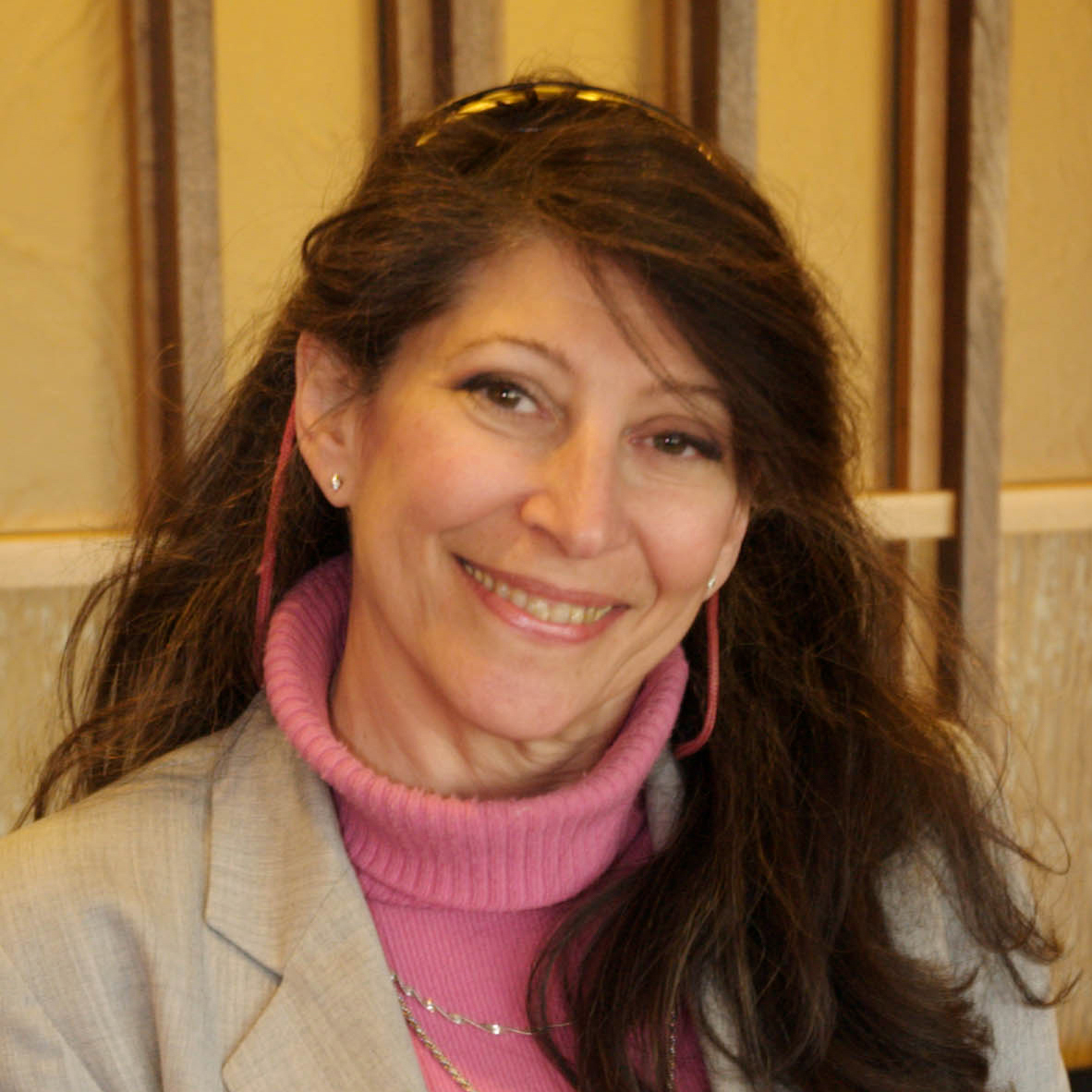 Science History PodcastAnimal Intelligence: Irene PepperbergFor over half a century, innovative scientists have tested the abilities of animals to learn to communicate using human systems, such as American Sign Language with chimps and gorillas. One could go back even farther in time, to the start of the 20th century, when the German mathematics teacher Wilhelm von Osten trained his Russian trotting horse Hans to answer questions, do simple math, and discriminate consonant vs. dissonant musical chords, all by nodding his head, tapping a hoof, pointing his nose, or picking up objects in his mouth. More recently, one of the most remarkable of such animal co...2018-06-1138 min
Science History PodcastAnimal Intelligence: Irene PepperbergFor over half a century, innovative scientists have tested the abilities of animals to learn to communicate using human systems, such as American Sign Language with chimps and gorillas. One could go back even farther in time, to the start of the 20th century, when the German mathematics teacher Wilhelm von Osten trained his Russian trotting horse Hans to answer questions, do simple math, and discriminate consonant vs. dissonant musical chords, all by nodding his head, tapping a hoof, pointing his nose, or picking up objects in his mouth. More recently, one of the most remarkable of such animal co...2018-06-1138 min Science History PodcastChemical Causes of Obesity: Bruce BlumbergThe obesity epidemic has spread throughout much of the world and is one of the leading drivers of impaired health and skyrocketing healthcare costs. In today’s episode, we are focusing on a neglected aspect of the obesity epidemic – the role played by exposure to toxic chemicals in our food, water, and the environment. Walking us through the history of this new field of research – investigations on obesogenic chemicals – is one of the leading researchers of the field, Bruce Blumberg. Bruce is a professor in the Departments of Developmental and Cell Biology, Pharmaceutical Sciences, and Biomedical Engineering at the University...2018-05-1130 min
Science History PodcastChemical Causes of Obesity: Bruce BlumbergThe obesity epidemic has spread throughout much of the world and is one of the leading drivers of impaired health and skyrocketing healthcare costs. In today’s episode, we are focusing on a neglected aspect of the obesity epidemic – the role played by exposure to toxic chemicals in our food, water, and the environment. Walking us through the history of this new field of research – investigations on obesogenic chemicals – is one of the leading researchers of the field, Bruce Blumberg. Bruce is a professor in the Departments of Developmental and Cell Biology, Pharmaceutical Sciences, and Biomedical Engineering at the University...2018-05-1130 min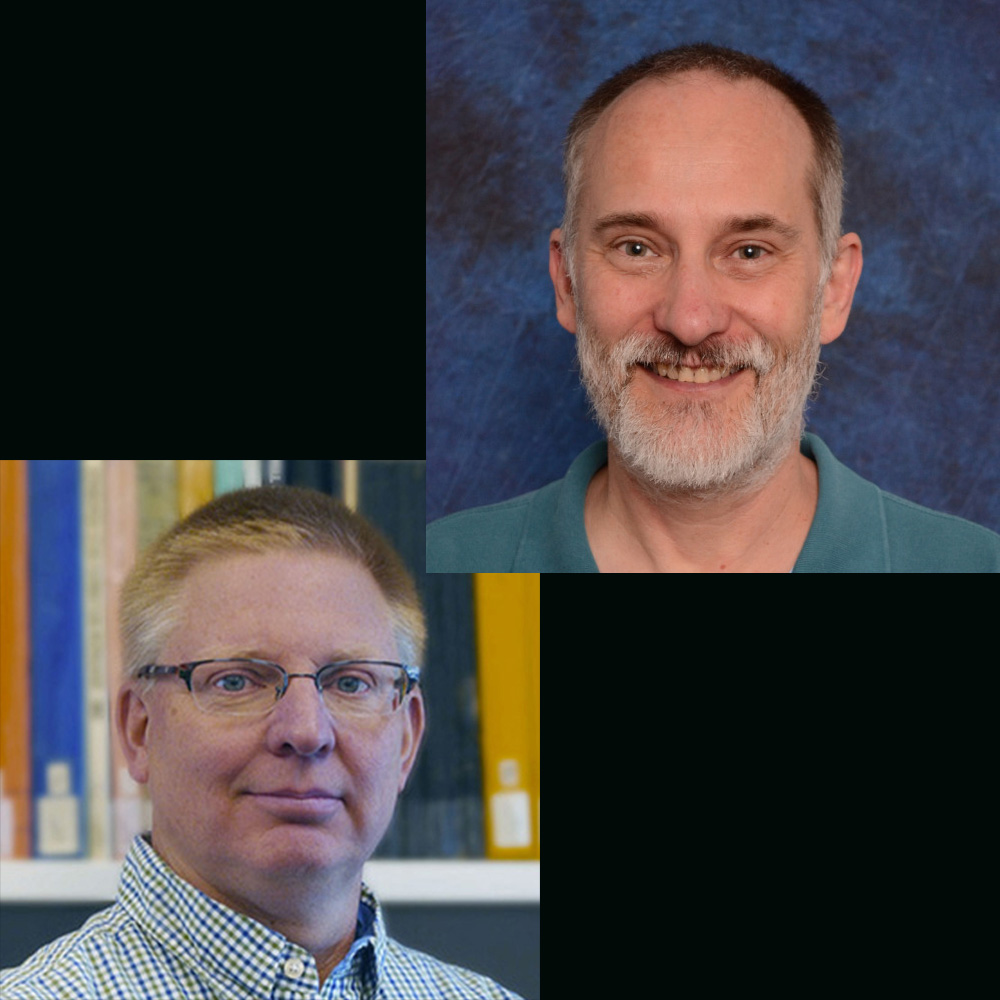 Science History PodcastFinding Pluto: Kevin Schindler and Will GrundyThe discovery and subsequent study of Pluto has captivated the public for nearly a century. Even the question of whether Pluto should be categorized as a planet or a dwarf planet has stirred passionate debate, but the implications of discoveries related to Pluto go far beyond the identification of an icy world at the outer edge of the solar system. My guests today are Kevin Schindler and Will Grundy, both of the Lowell Observatory in Flagstaff, Arizona, where Pluto was discovered. Kevin is a historian and Will is a planetary scientist, and the release of this episode of the Sci...2018-03-1152 min
Science History PodcastFinding Pluto: Kevin Schindler and Will GrundyThe discovery and subsequent study of Pluto has captivated the public for nearly a century. Even the question of whether Pluto should be categorized as a planet or a dwarf planet has stirred passionate debate, but the implications of discoveries related to Pluto go far beyond the identification of an icy world at the outer edge of the solar system. My guests today are Kevin Schindler and Will Grundy, both of the Lowell Observatory in Flagstaff, Arizona, where Pluto was discovered. Kevin is a historian and Will is a planetary scientist, and the release of this episode of the Sci...2018-03-1152 min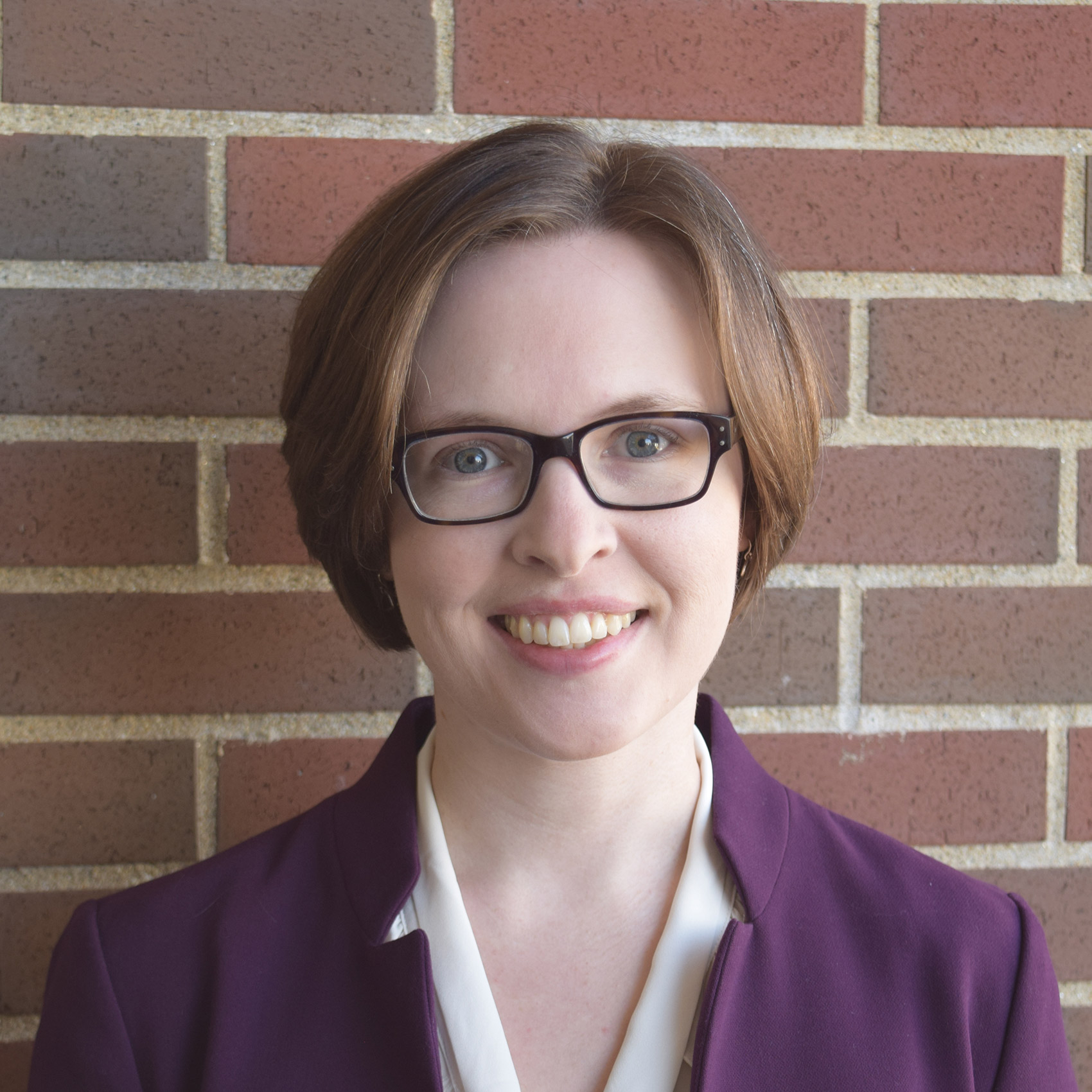 Science History PodcastU.S. Congressional Attacks on Science: Melinda Baldwin and Josh ShiodeAttacks on science and scientists have been a hallmark of the Trump administration, but such attacks emanating from the U.S. federal government are not new, nor are they restricted to one political party or one branch of government. The best known of such attacks came from Bill Proxmire, who served in the Senate as a Democrat representing the state of Wisconsin from 1957-1989. Proxmire achieved national recognition with his monthly Golden Fleece Awards, in which he mocked what he considered to be wasteful government spending. After Proxmire retired from the Senate, other members of Congress took over the job...2018-02-121h 07
Science History PodcastU.S. Congressional Attacks on Science: Melinda Baldwin and Josh ShiodeAttacks on science and scientists have been a hallmark of the Trump administration, but such attacks emanating from the U.S. federal government are not new, nor are they restricted to one political party or one branch of government. The best known of such attacks came from Bill Proxmire, who served in the Senate as a Democrat representing the state of Wisconsin from 1957-1989. Proxmire achieved national recognition with his monthly Golden Fleece Awards, in which he mocked what he considered to be wasteful government spending. After Proxmire retired from the Senate, other members of Congress took over the job...2018-02-121h 07 Science History PodcastEndocrine Disruption: Pete MyersMy guest Pete Myers has spent the past 30 years calling media attention to findings about toxic chemicals, while the industry producing those chemicals has worked to discredit the science and scientists involved. In the 1990s, Pete helped to establish the field within toxicology known as endocrine disruption. Since then, he has relentlessly brought the findings of this field into public view. It turns out that many chemicals are toxic because they disrupt the body’s normal hormonal processes, hence the term endocrine disruption. Exposure to many of these chemicals in early development can cause diseases later in life...2017-12-1145 min
Science History PodcastEndocrine Disruption: Pete MyersMy guest Pete Myers has spent the past 30 years calling media attention to findings about toxic chemicals, while the industry producing those chemicals has worked to discredit the science and scientists involved. In the 1990s, Pete helped to establish the field within toxicology known as endocrine disruption. Since then, he has relentlessly brought the findings of this field into public view. It turns out that many chemicals are toxic because they disrupt the body’s normal hormonal processes, hence the term endocrine disruption. Exposure to many of these chemicals in early development can cause diseases later in life...2017-12-1145 min How to Get Audiobook in Radio & TV, Great InterviewsCharlie Rose: Seth Stein, Olli Heinonen, Frank N. von Hippel, Walter Mossberg, and Anna Coren, March 14, 2011 by Charlie Rose | Free AudiobookListen to full audiobooks for free on :https://hotaudiobook.com/freeTitle: Charlie Rose: Seth Stein, Olli Heinonen, Frank N. von Hippel, Walter Mossberg, and Anna Coren, March 14, 2011
Author: Charlie Rose
Narrator: Charlie Rose
Format: Original Recording
Length: 53 mins
Language: English
Release date: 03-14-11
Publisher: Charlie Rose Show
Genres: Radio & TV, Great Interviews
Summary:
An update on the Nuclear Crisis in Japan, with Olli Heinonen, Frank N. von Hippel, and David Sanger. Next, a look at the iPad 2 and the future of tablets, with David Carr and Walter Mossberg. Finally Anna Coren of CNN reports from Japan. [Broadcast Date: March 14, 2011]
...2011-03-1453 min
How to Get Audiobook in Radio & TV, Great InterviewsCharlie Rose: Seth Stein, Olli Heinonen, Frank N. von Hippel, Walter Mossberg, and Anna Coren, March 14, 2011 by Charlie Rose | Free AudiobookListen to full audiobooks for free on :https://hotaudiobook.com/freeTitle: Charlie Rose: Seth Stein, Olli Heinonen, Frank N. von Hippel, Walter Mossberg, and Anna Coren, March 14, 2011
Author: Charlie Rose
Narrator: Charlie Rose
Format: Original Recording
Length: 53 mins
Language: English
Release date: 03-14-11
Publisher: Charlie Rose Show
Genres: Radio & TV, Great Interviews
Summary:
An update on the Nuclear Crisis in Japan, with Olli Heinonen, Frank N. von Hippel, and David Sanger. Next, a look at the iPad 2 and the future of tablets, with David Carr and Walter Mossberg. Finally Anna Coren of CNN reports from Japan. [Broadcast Date: March 14, 2011]
...2011-03-1453 min